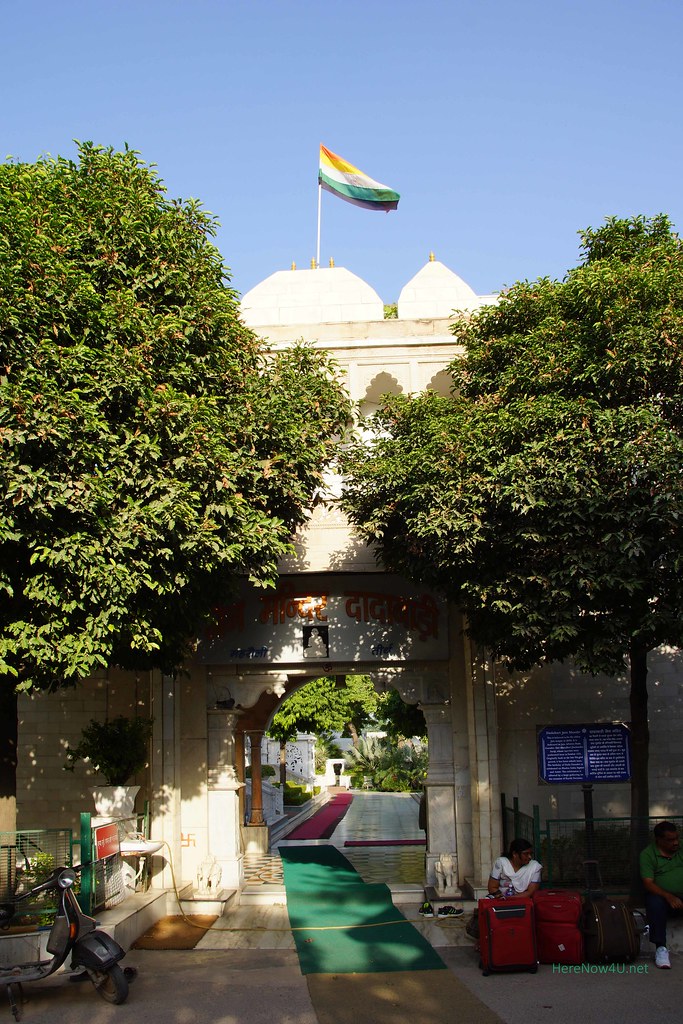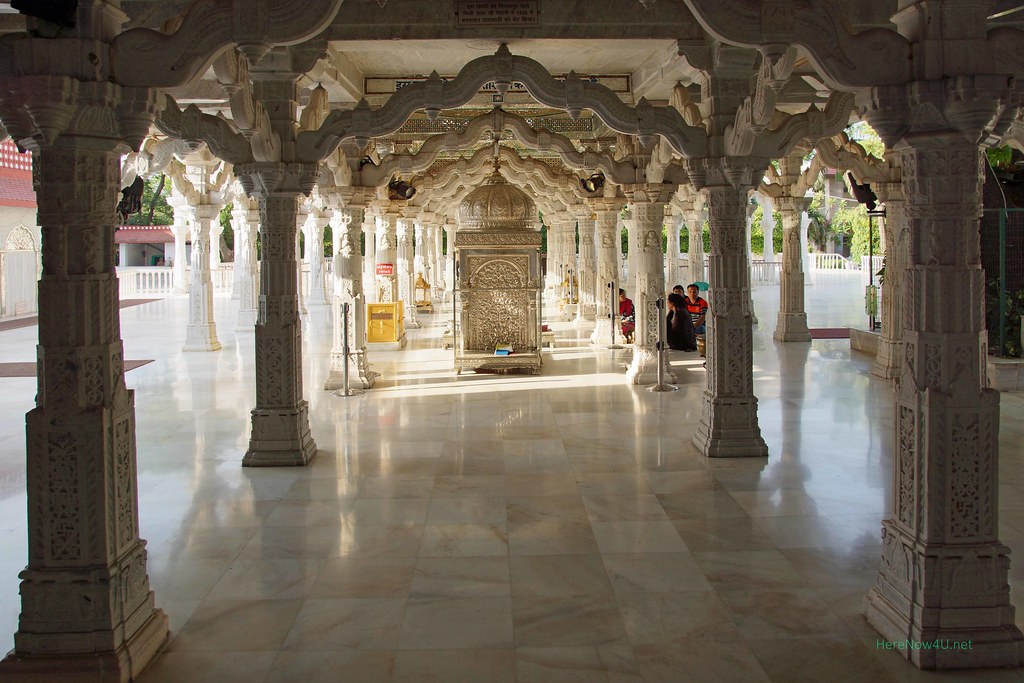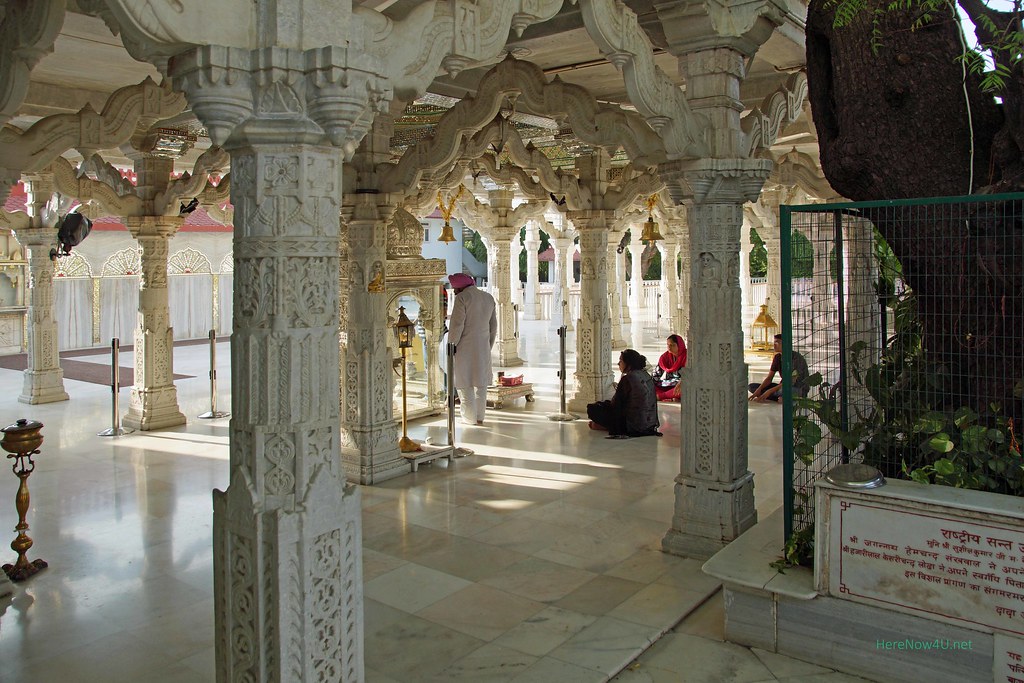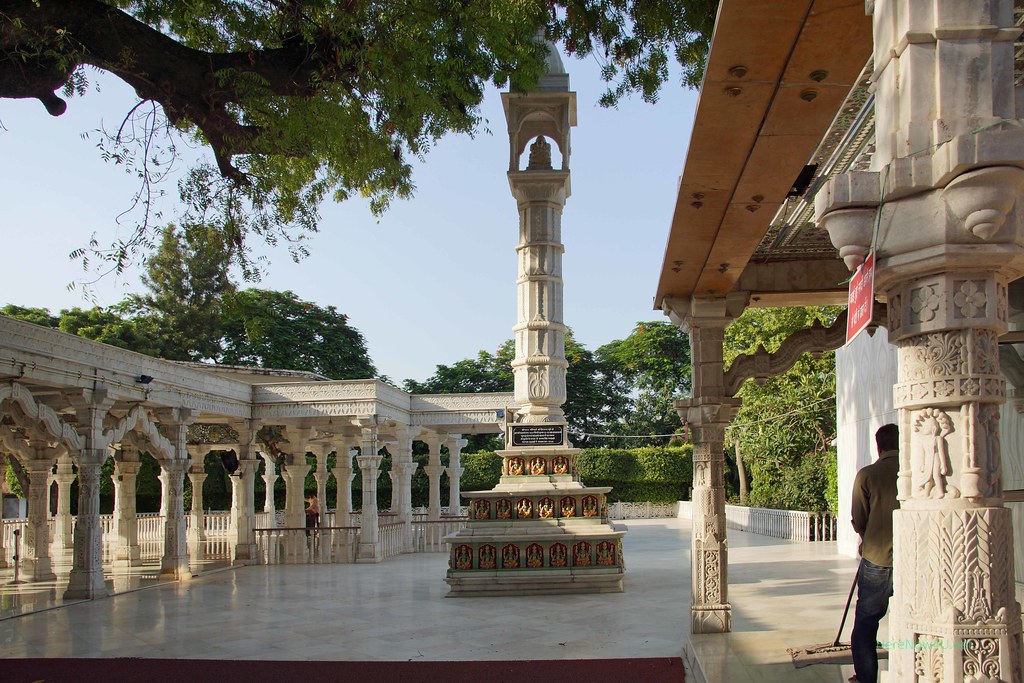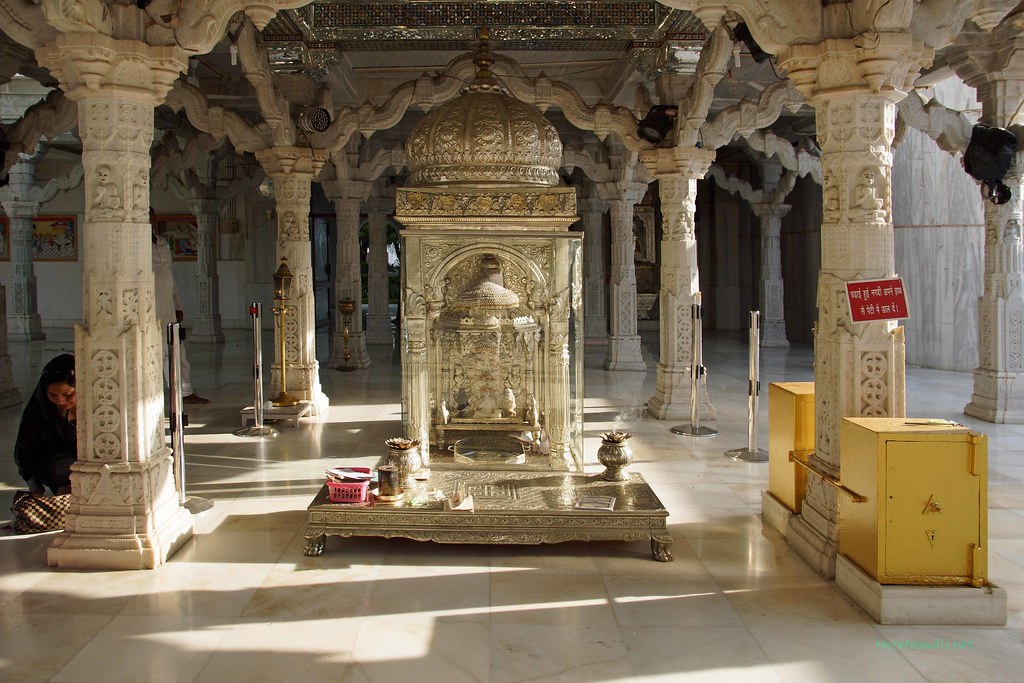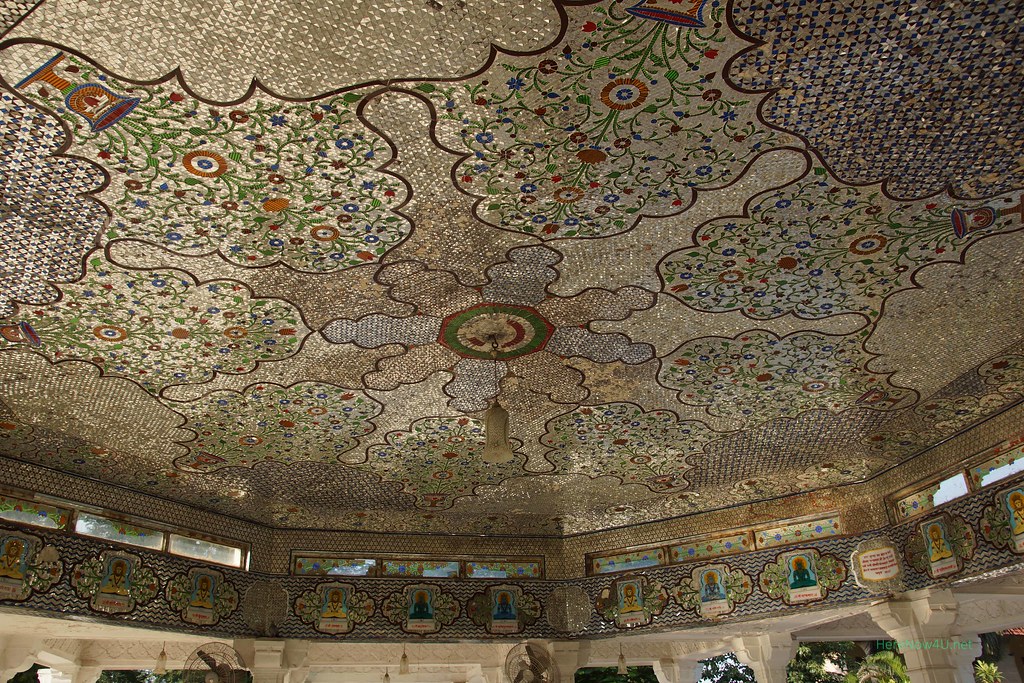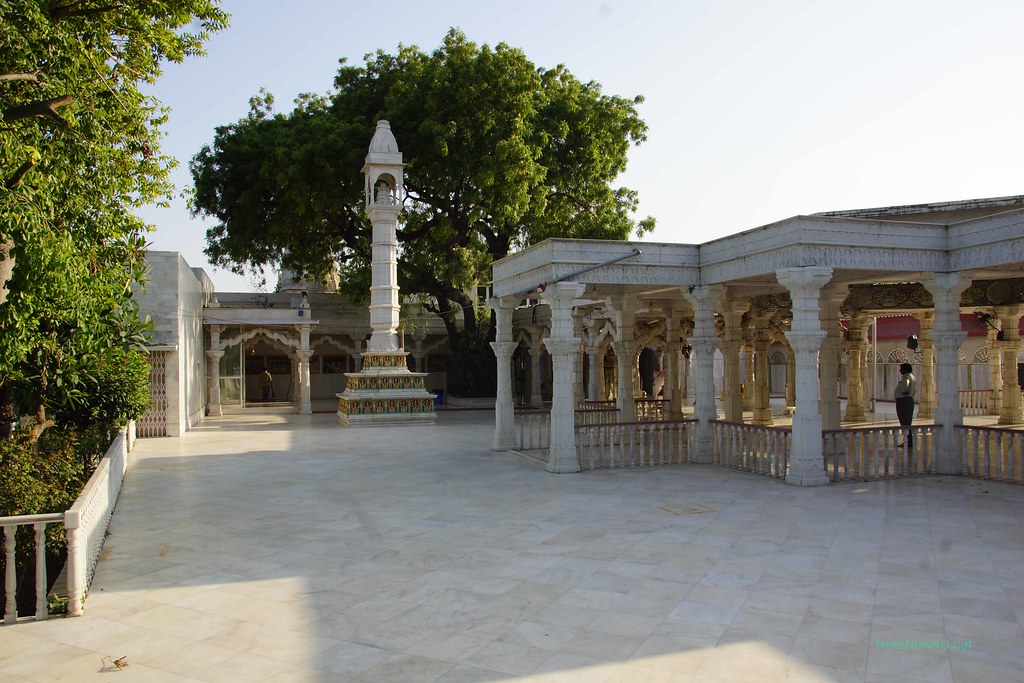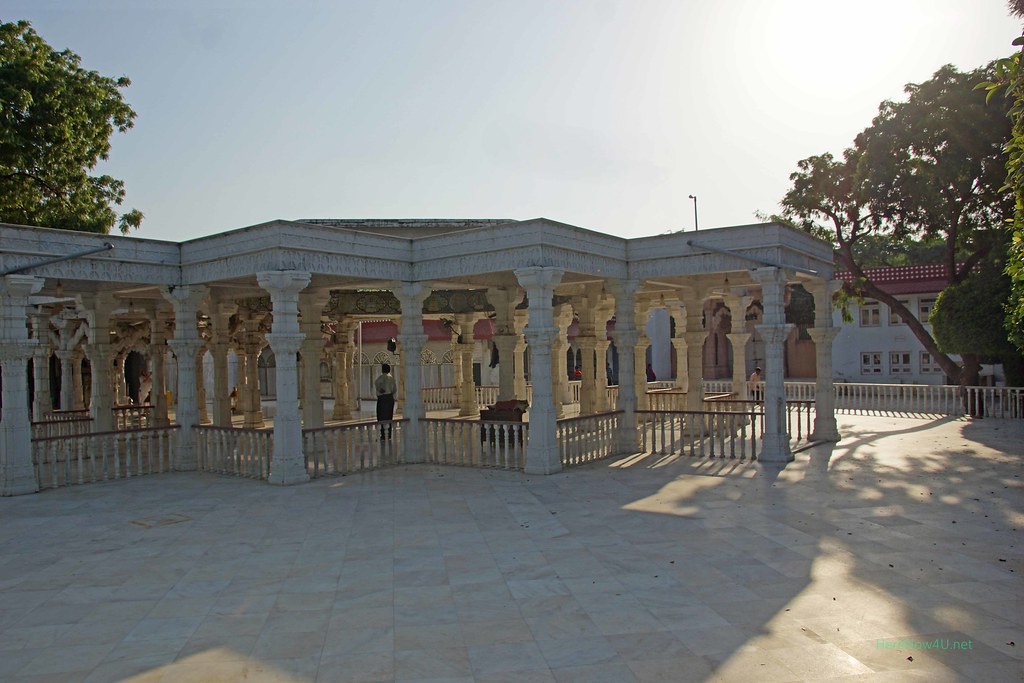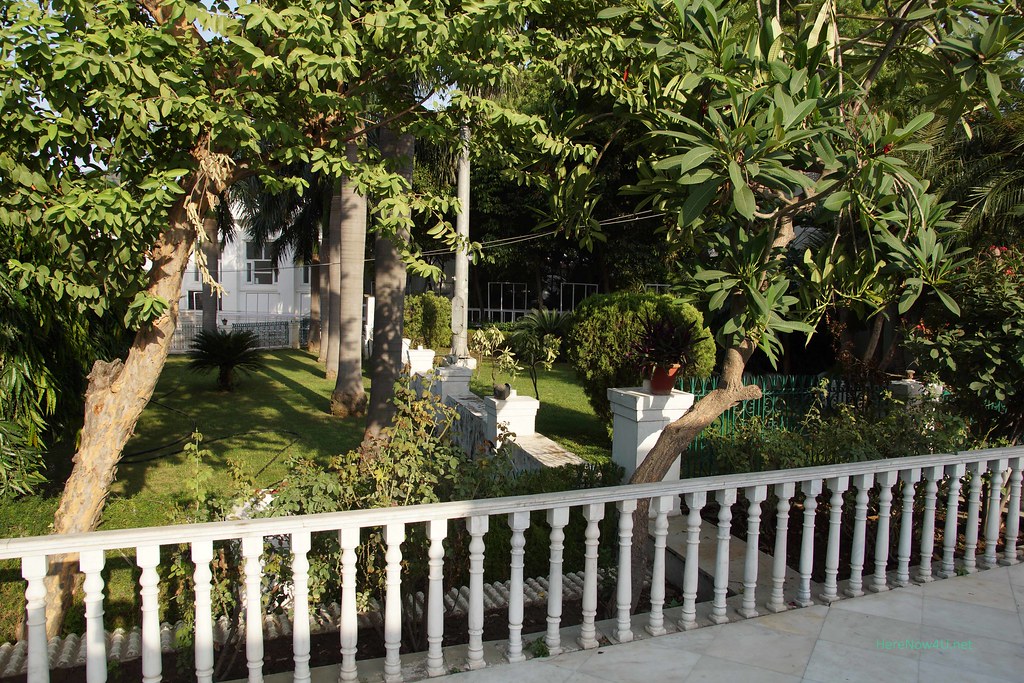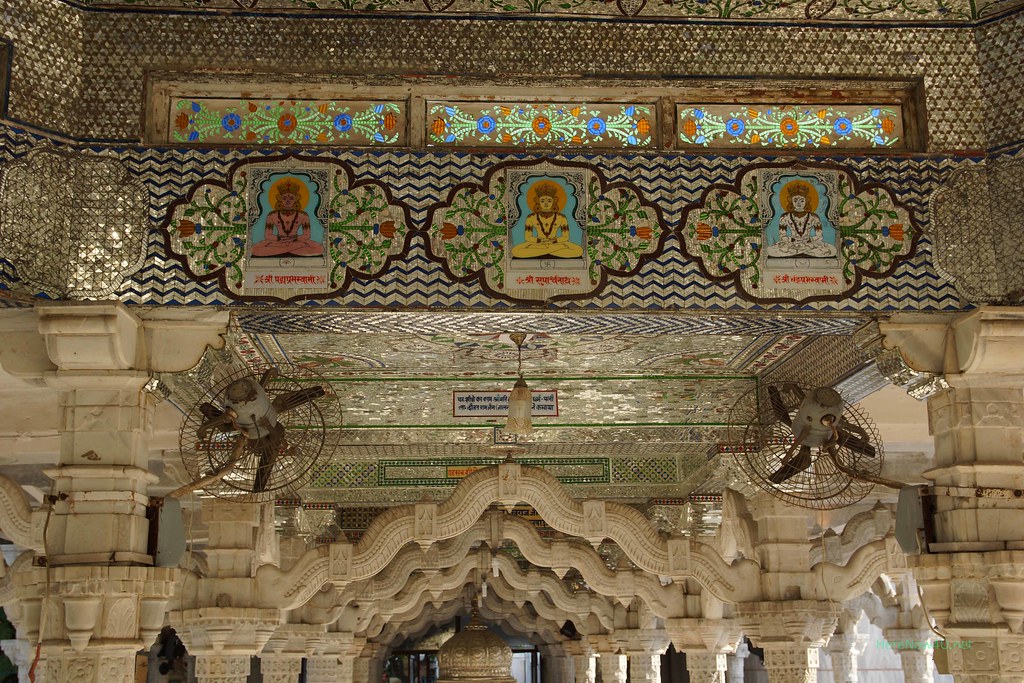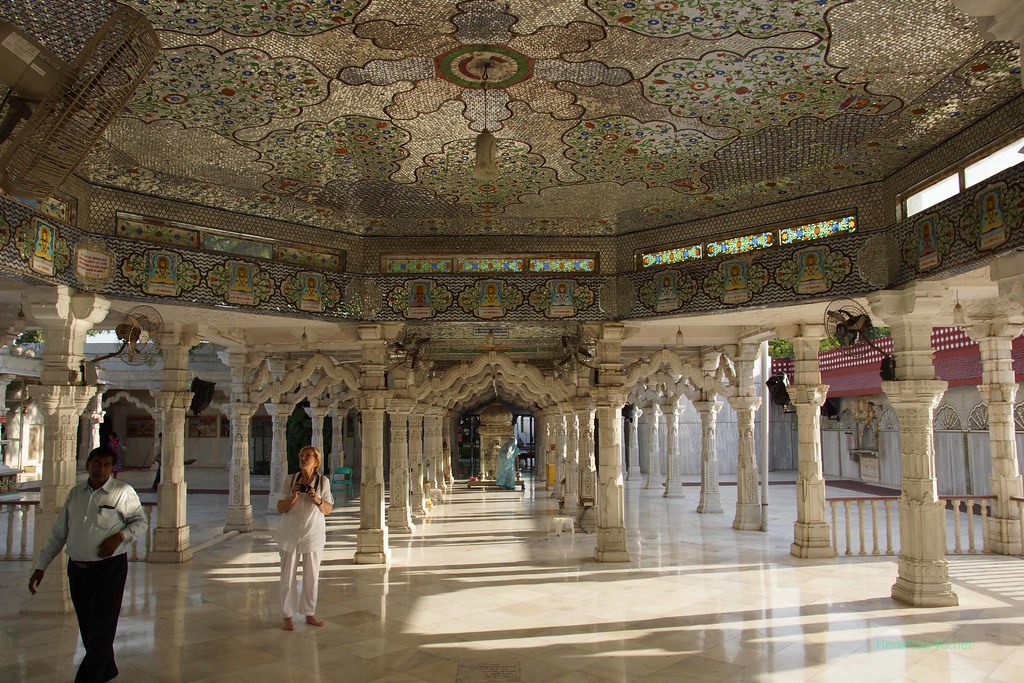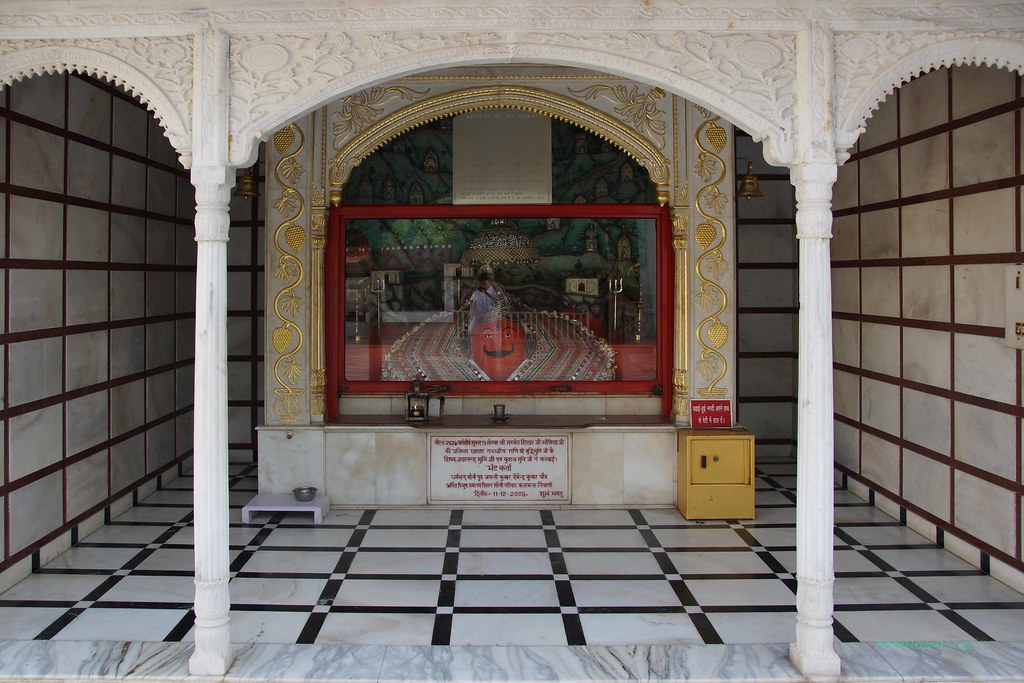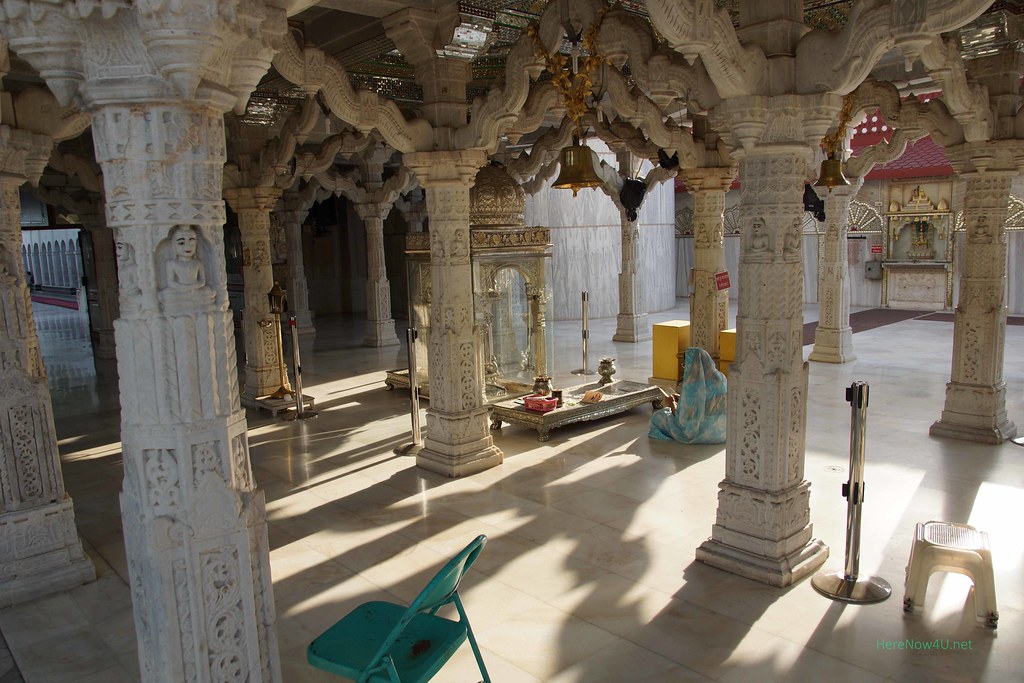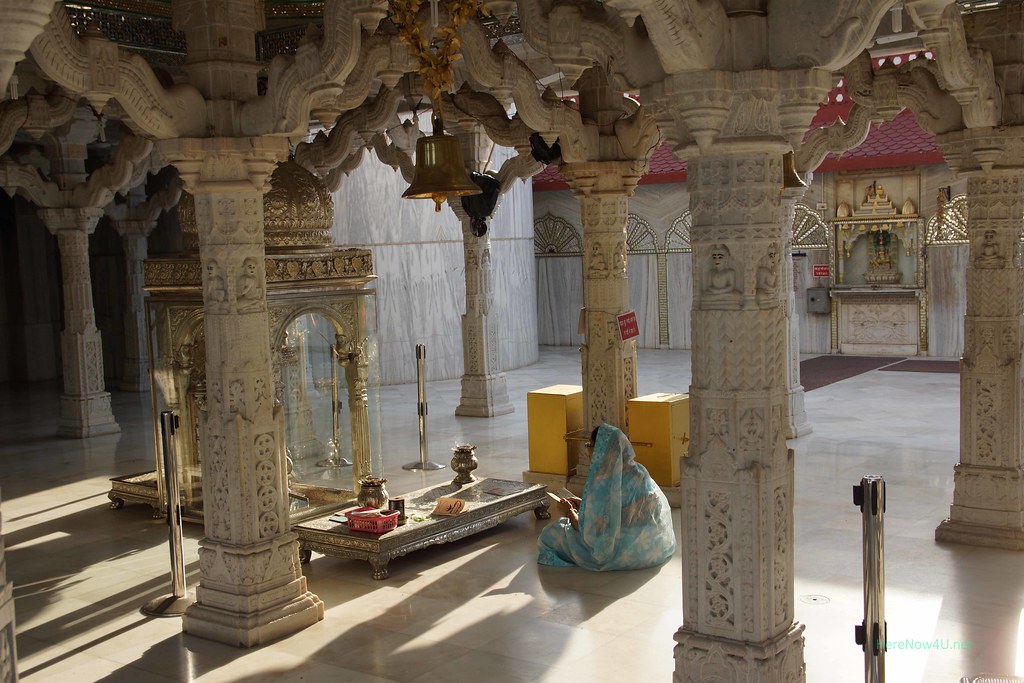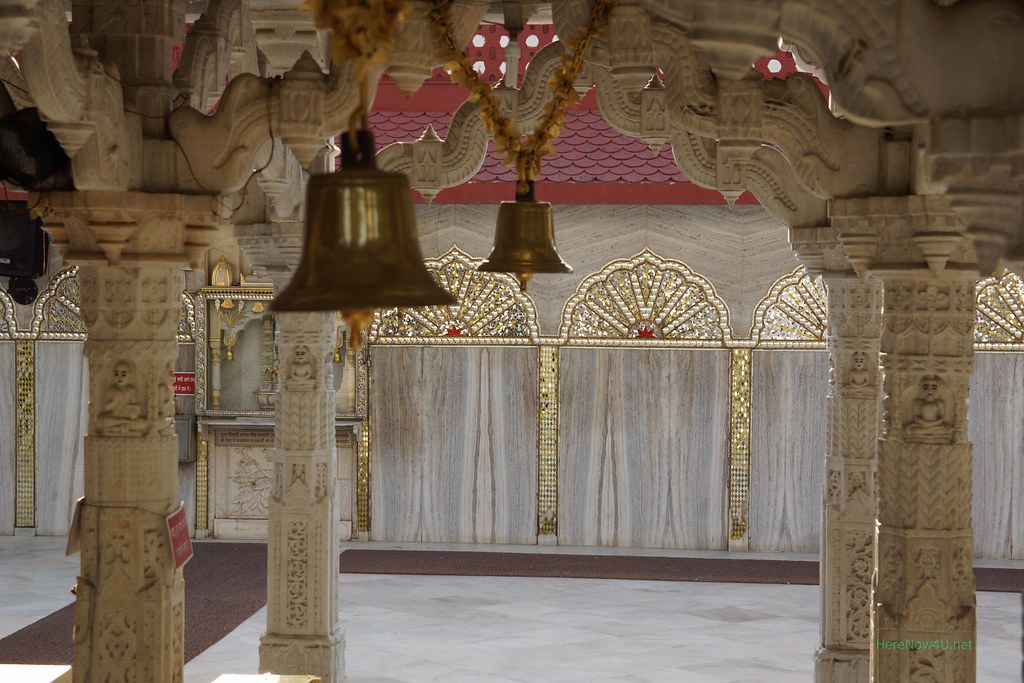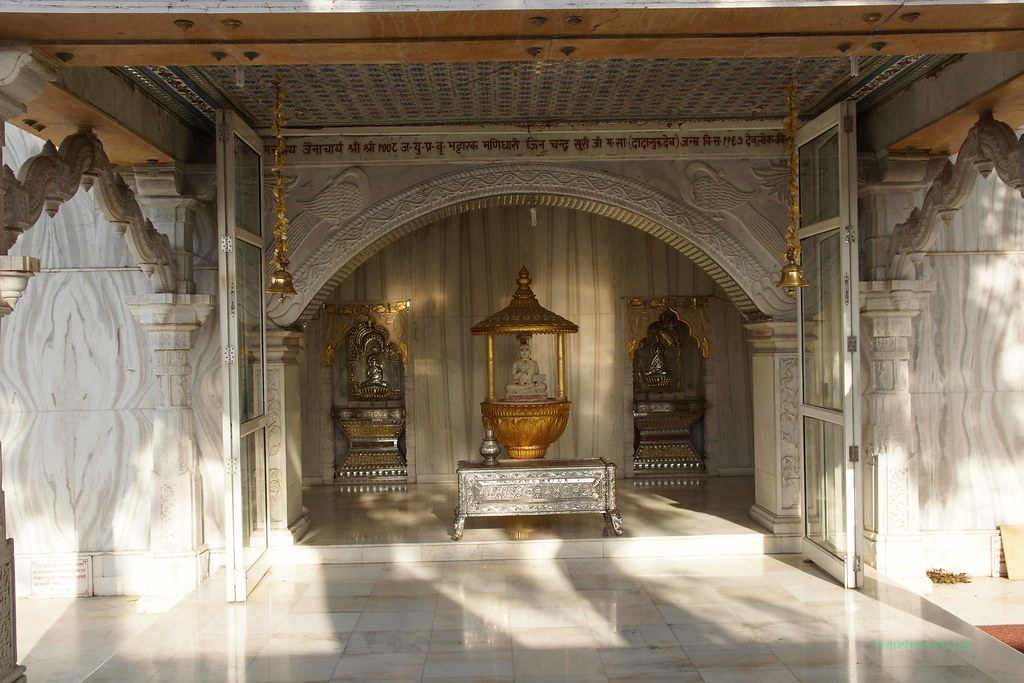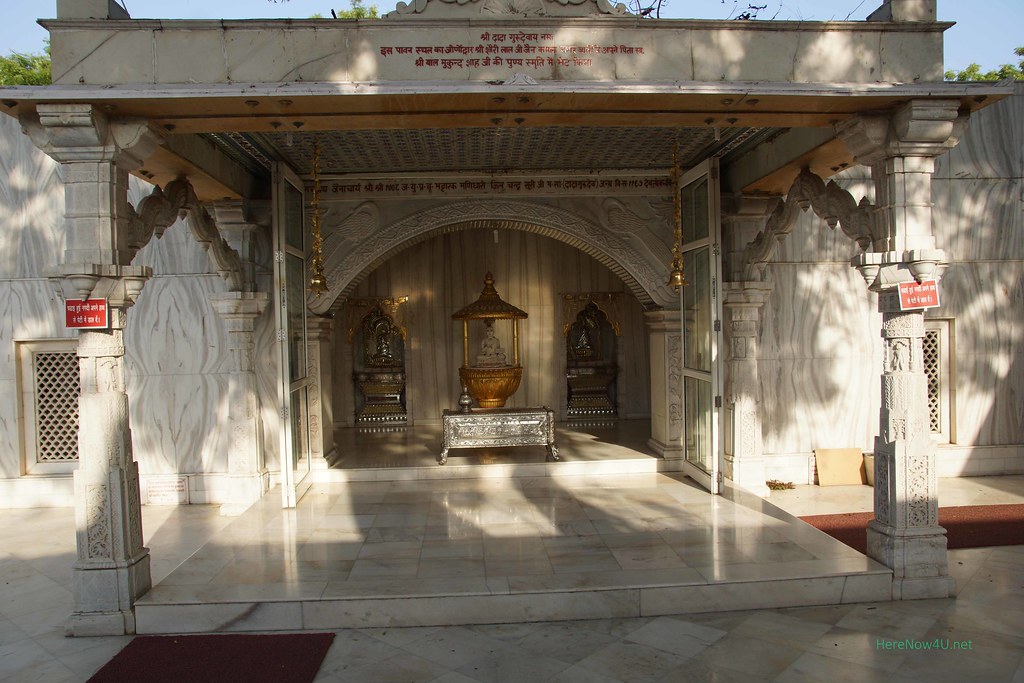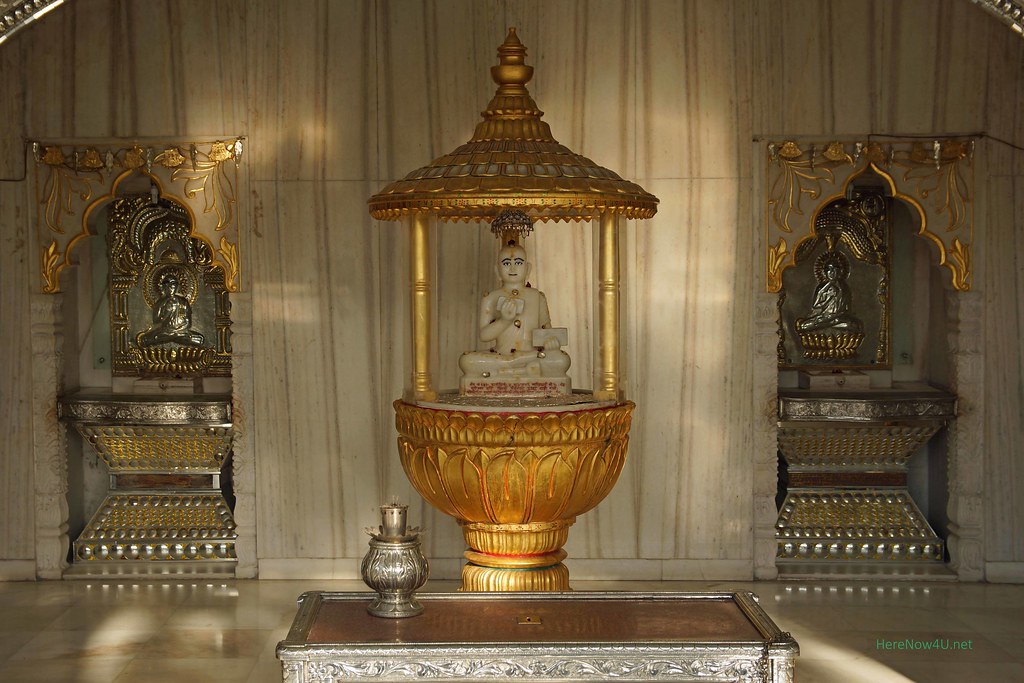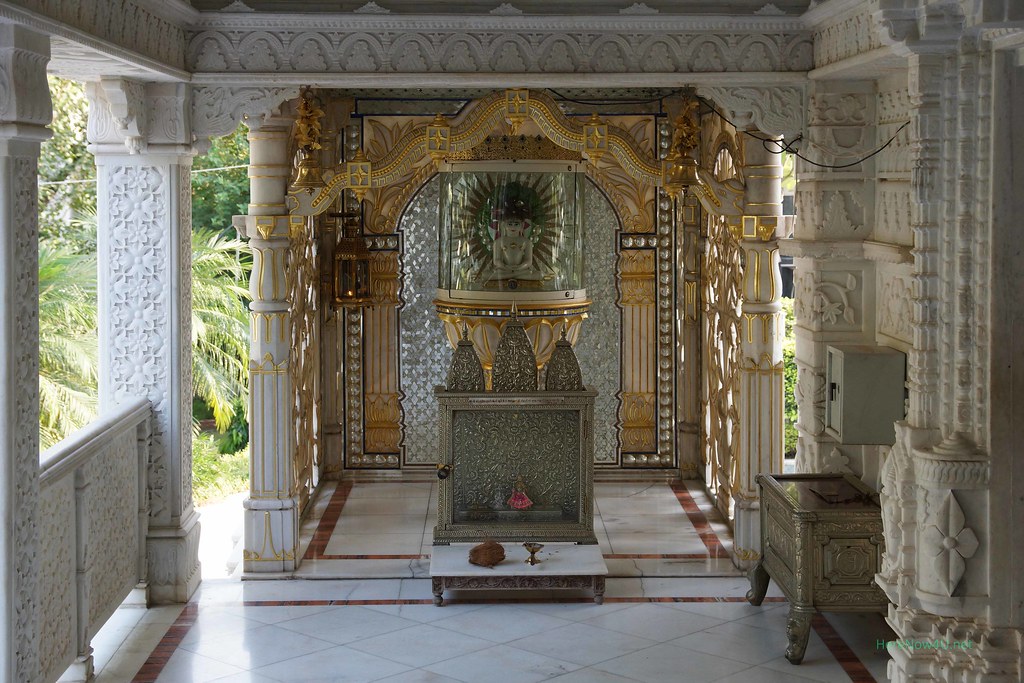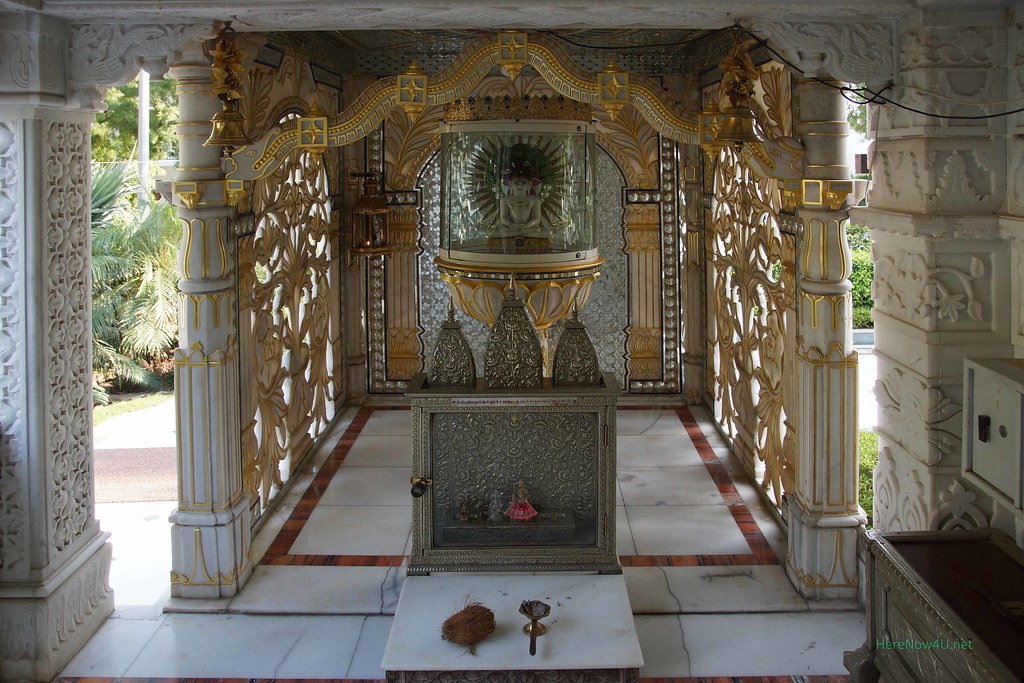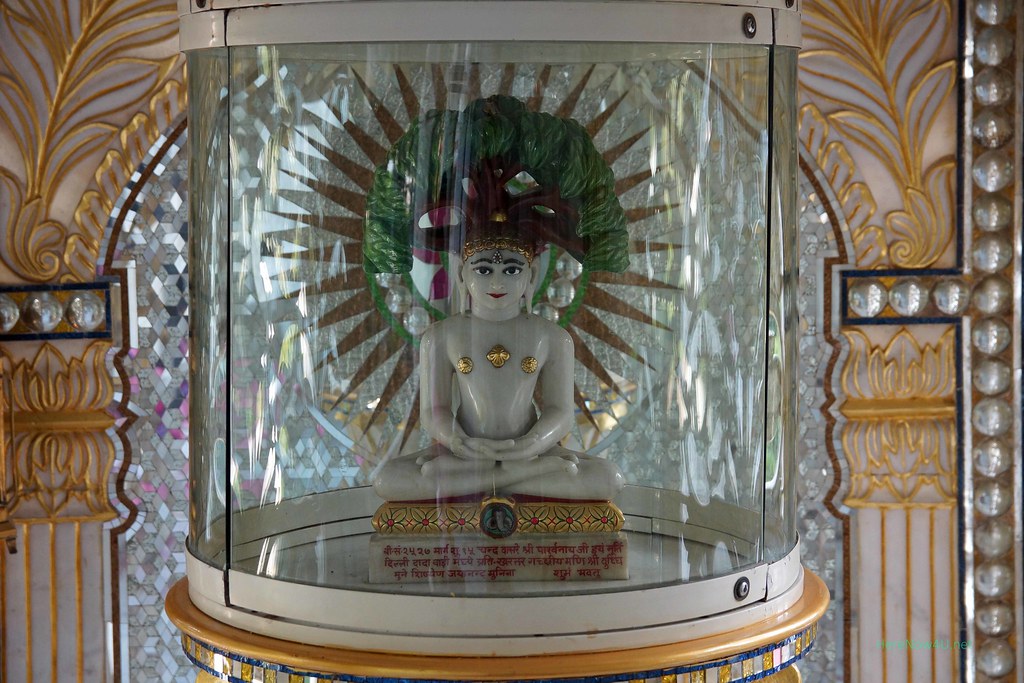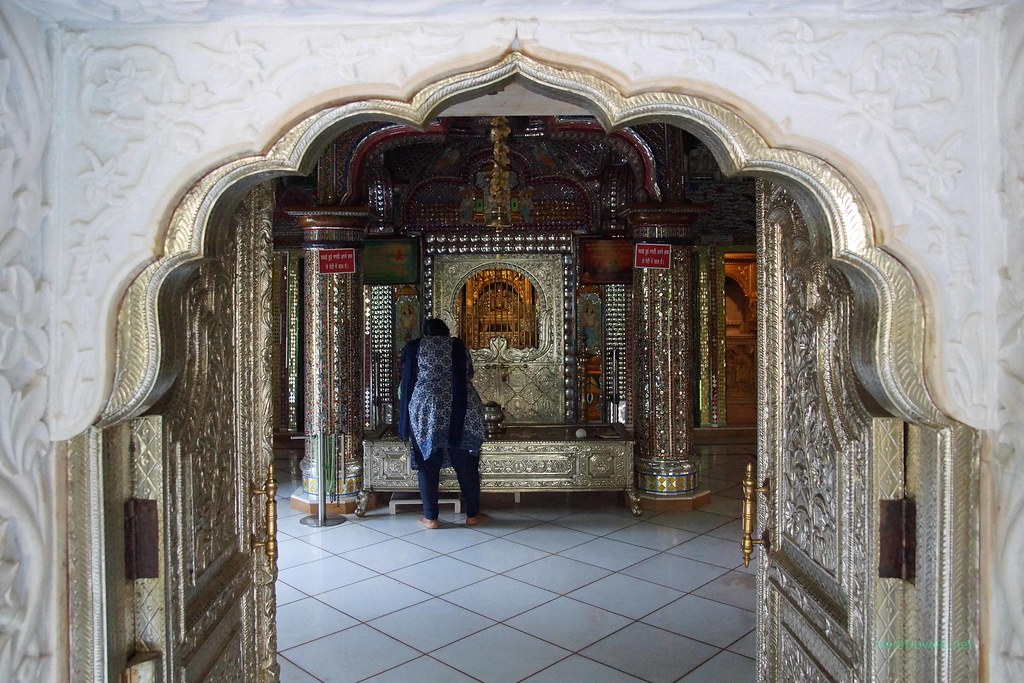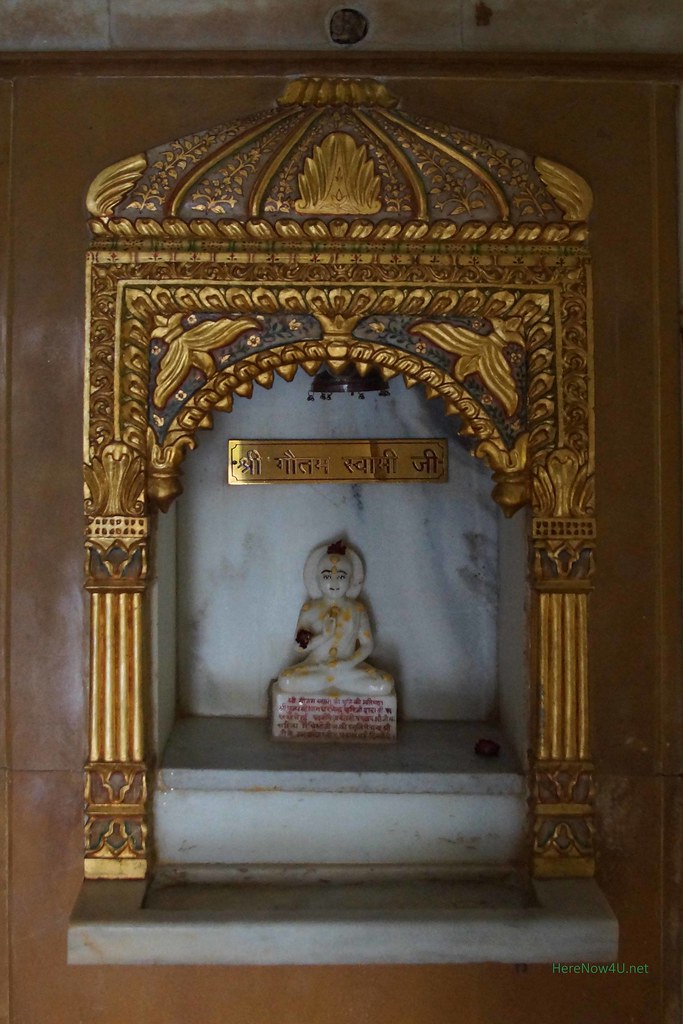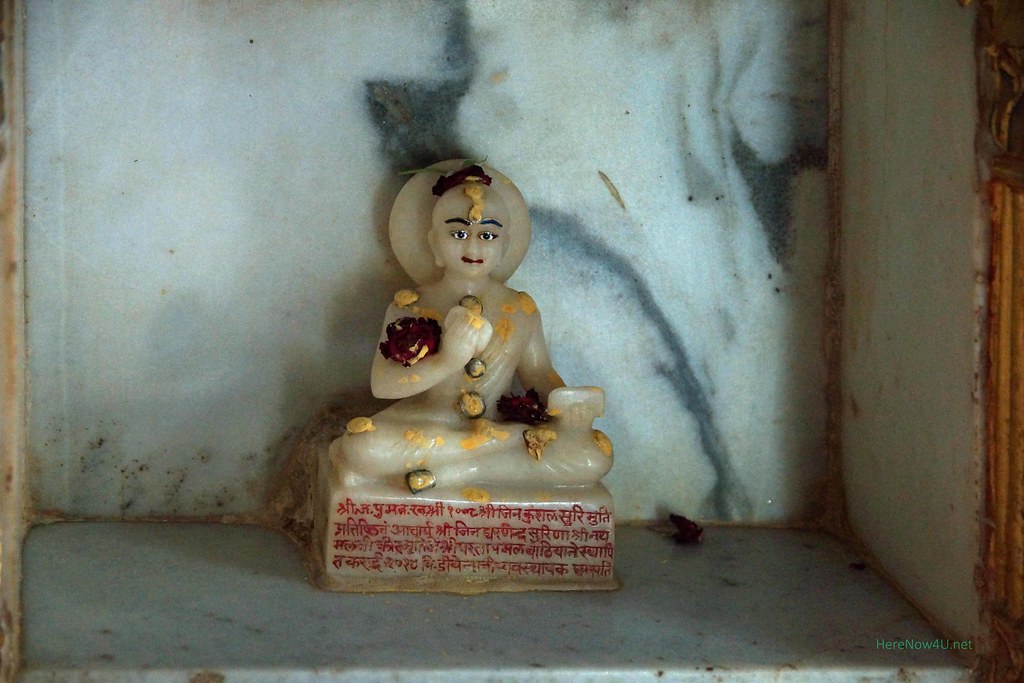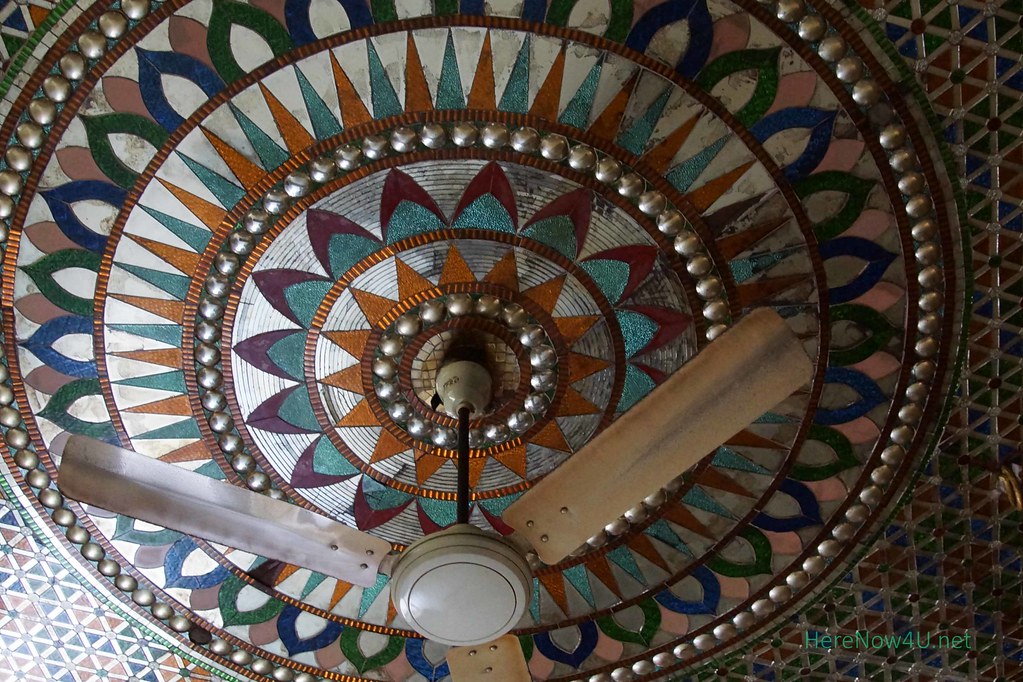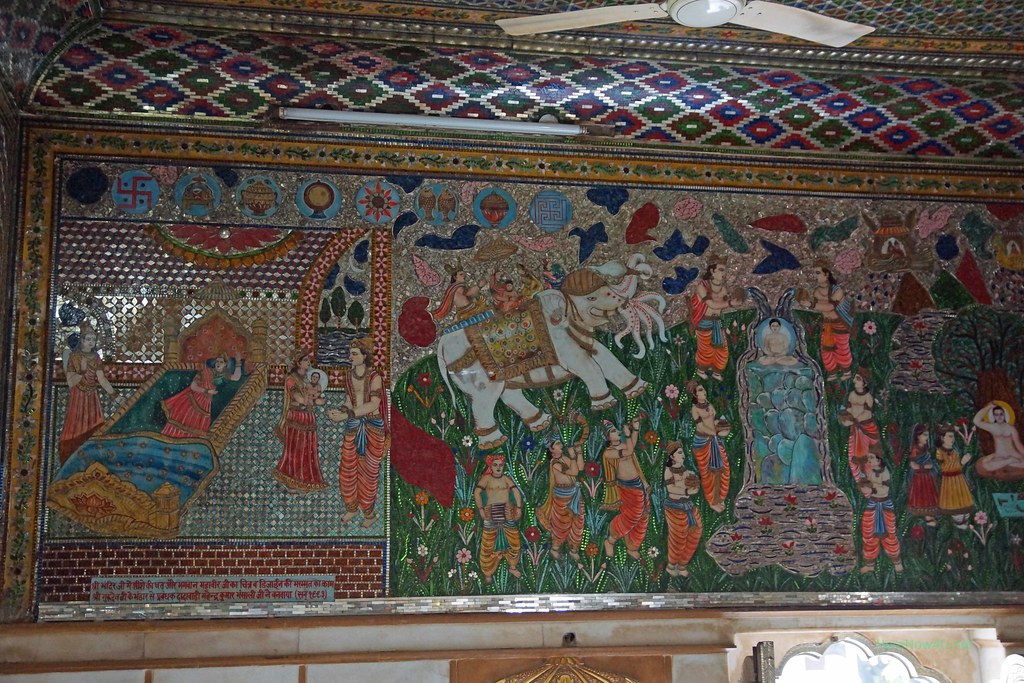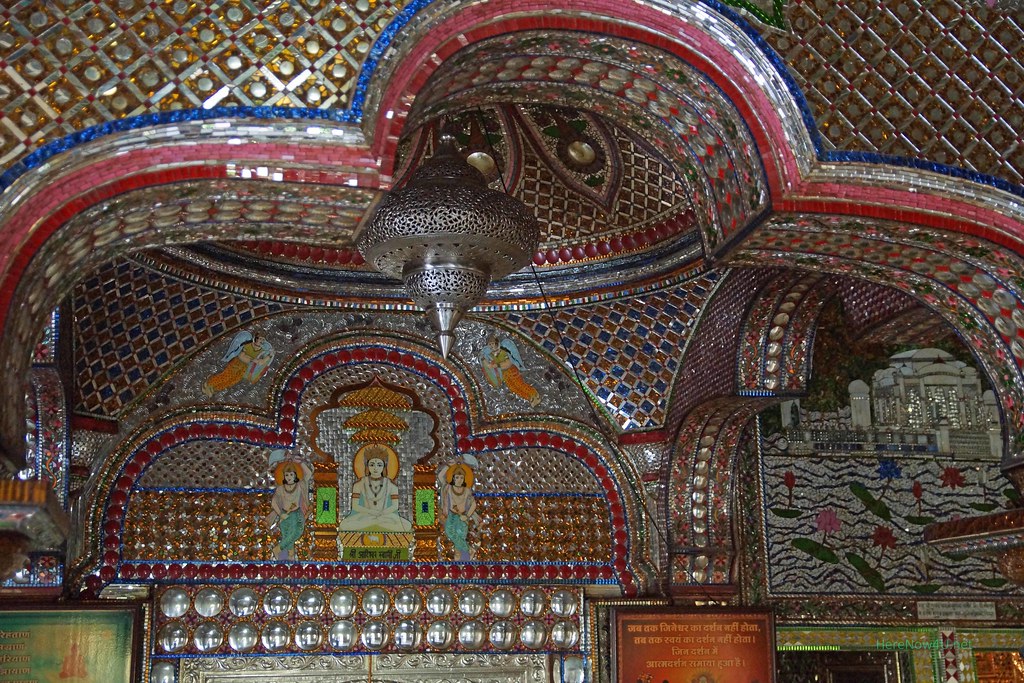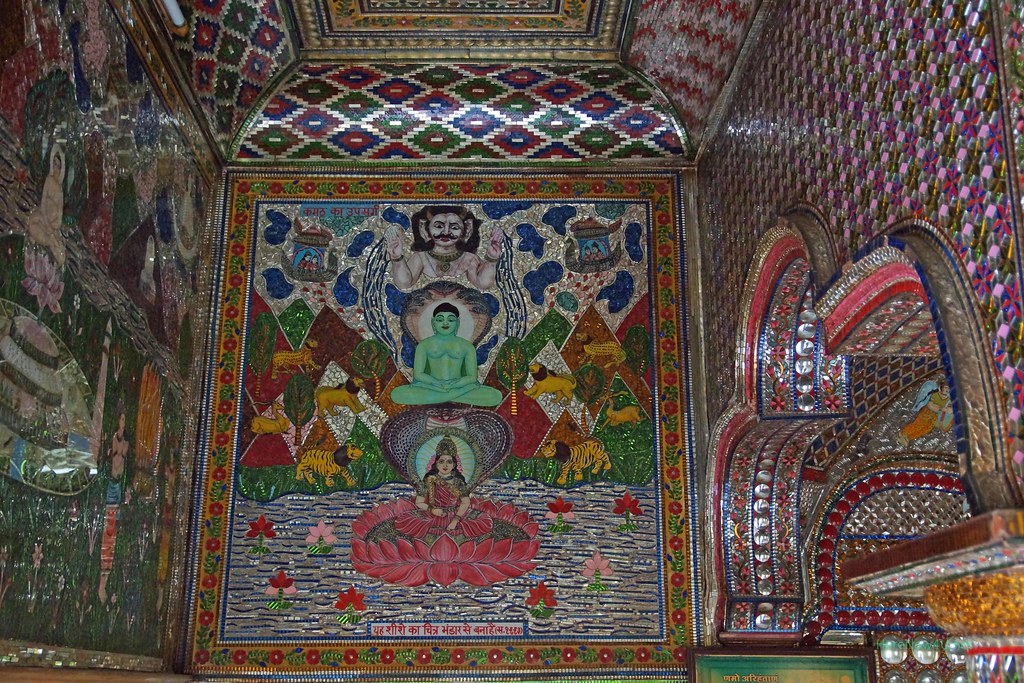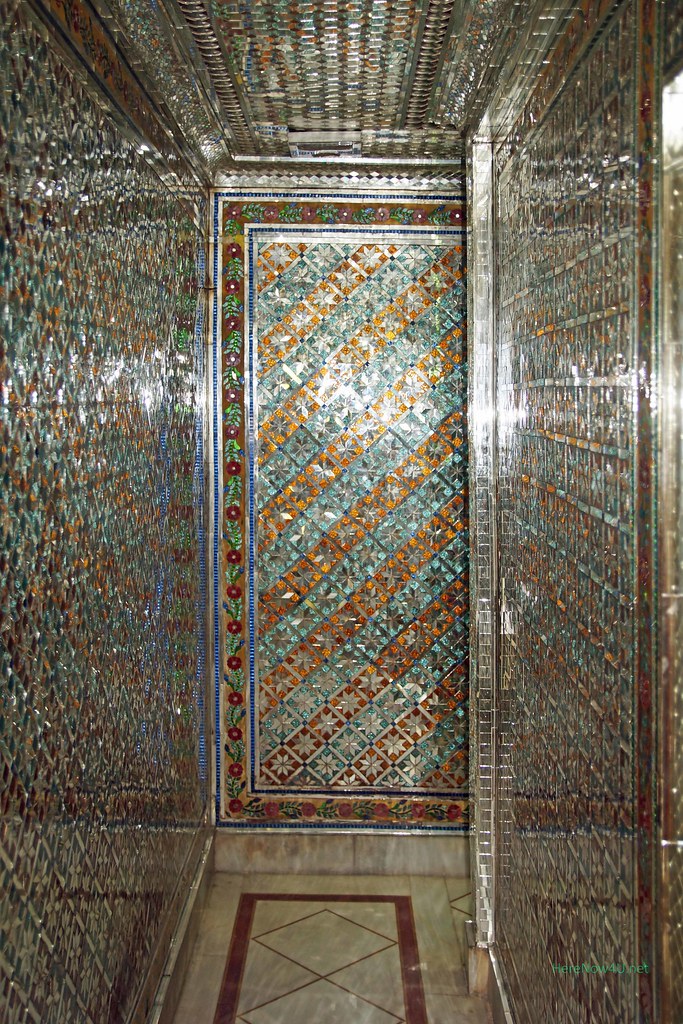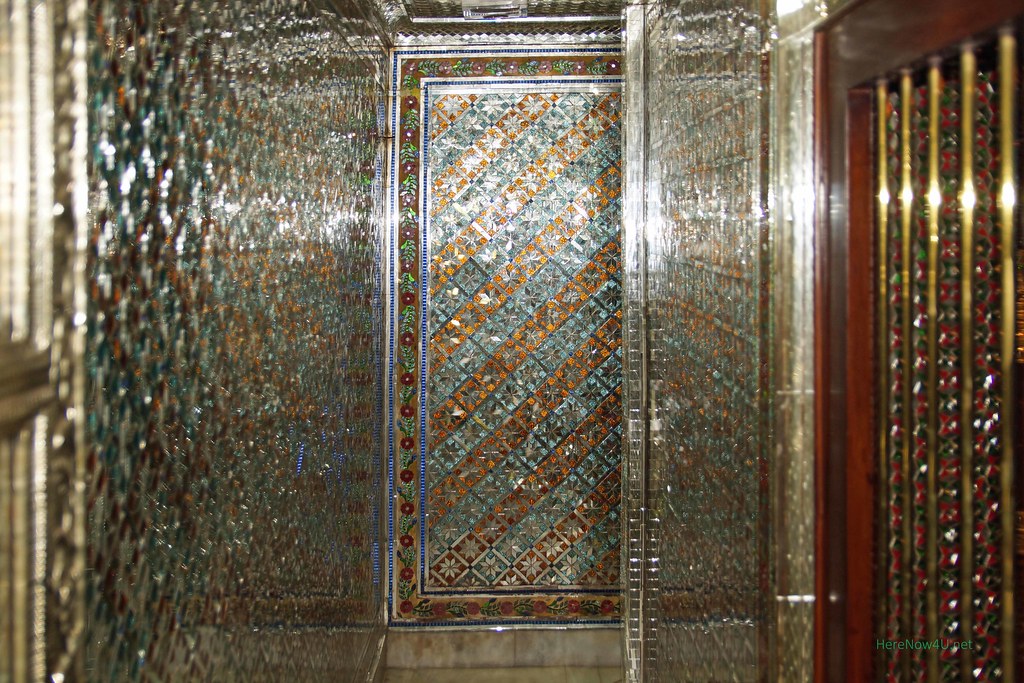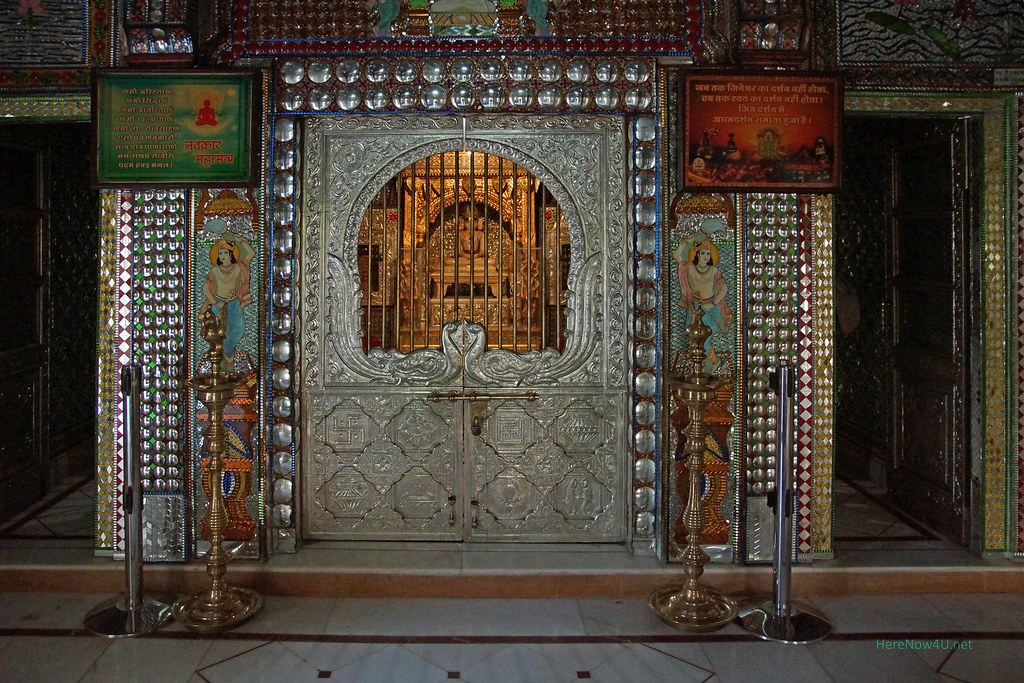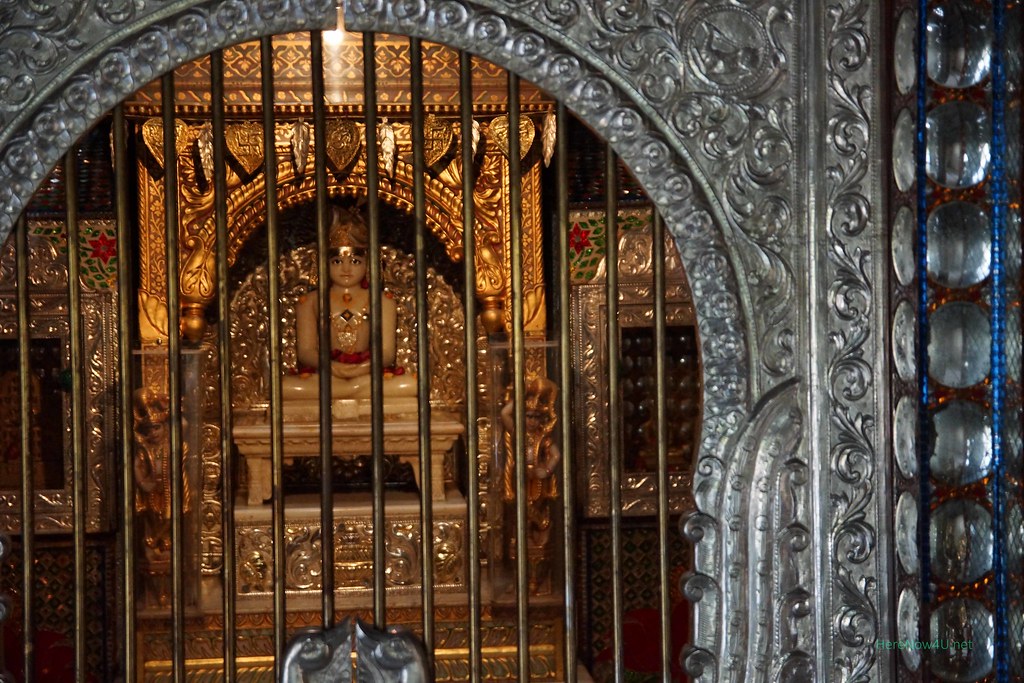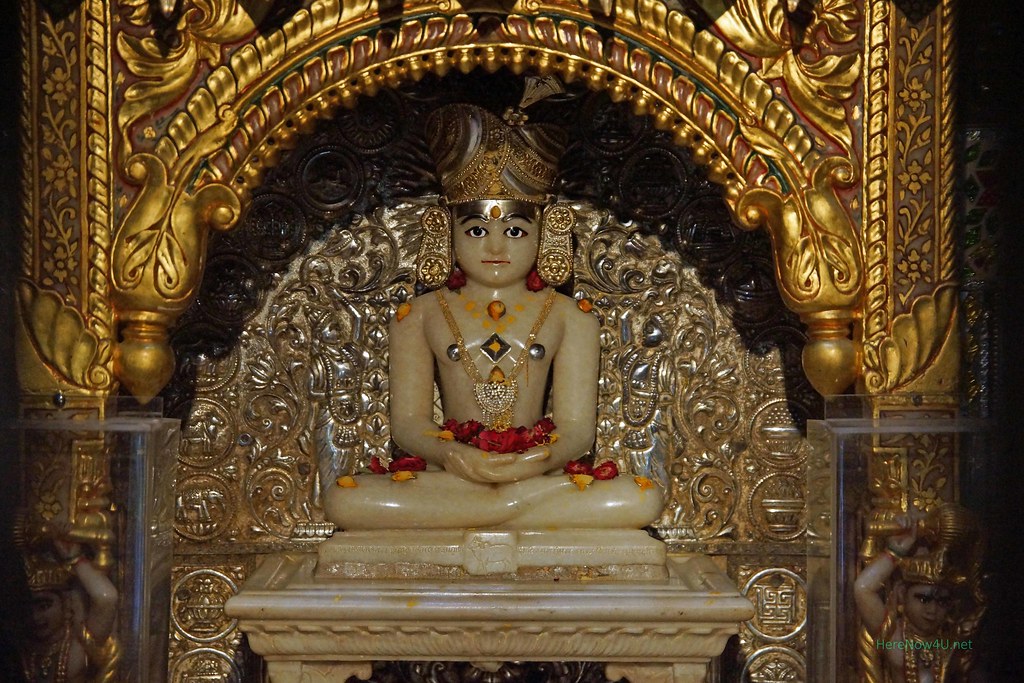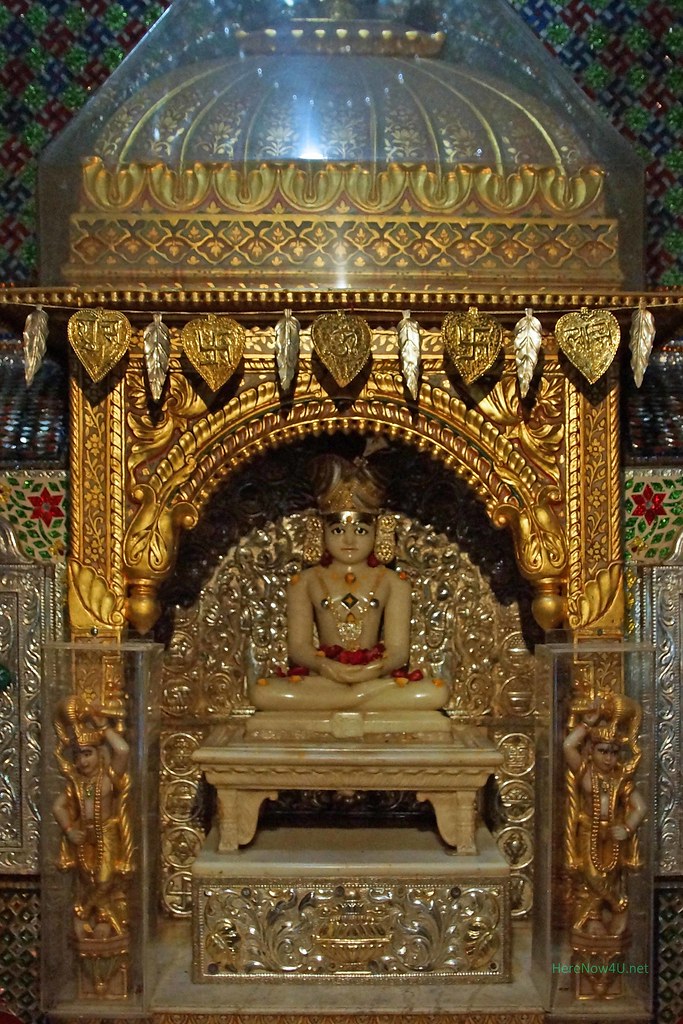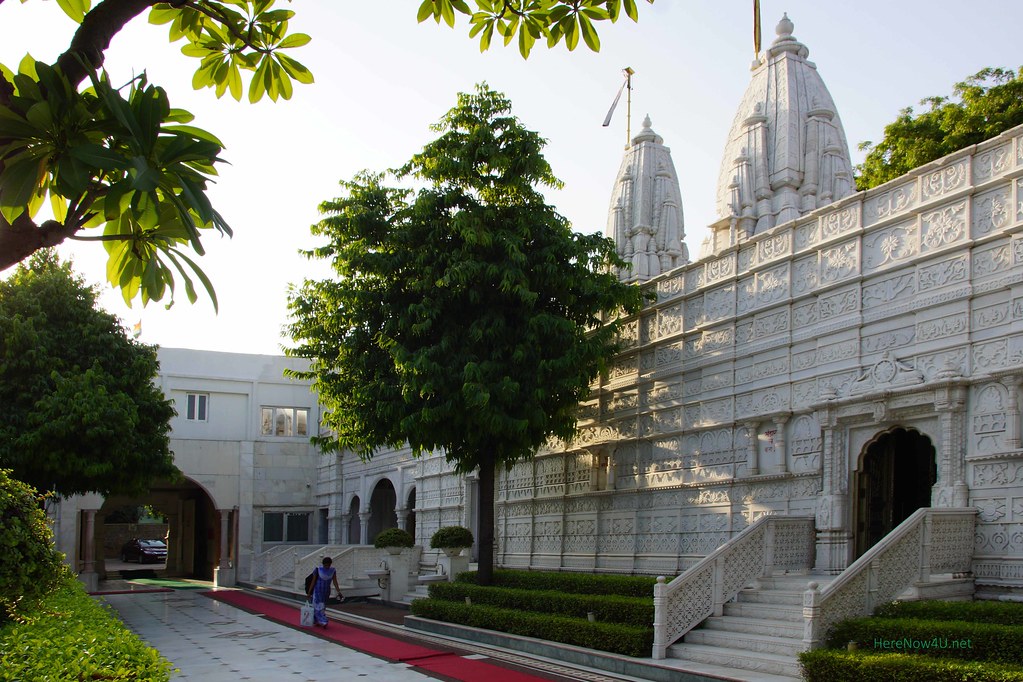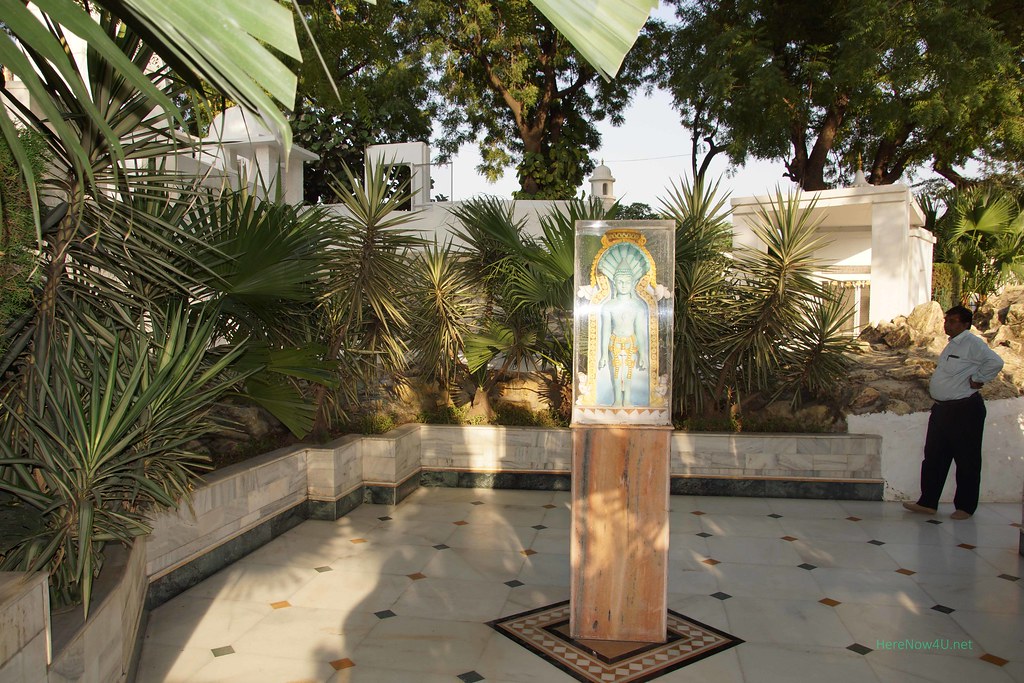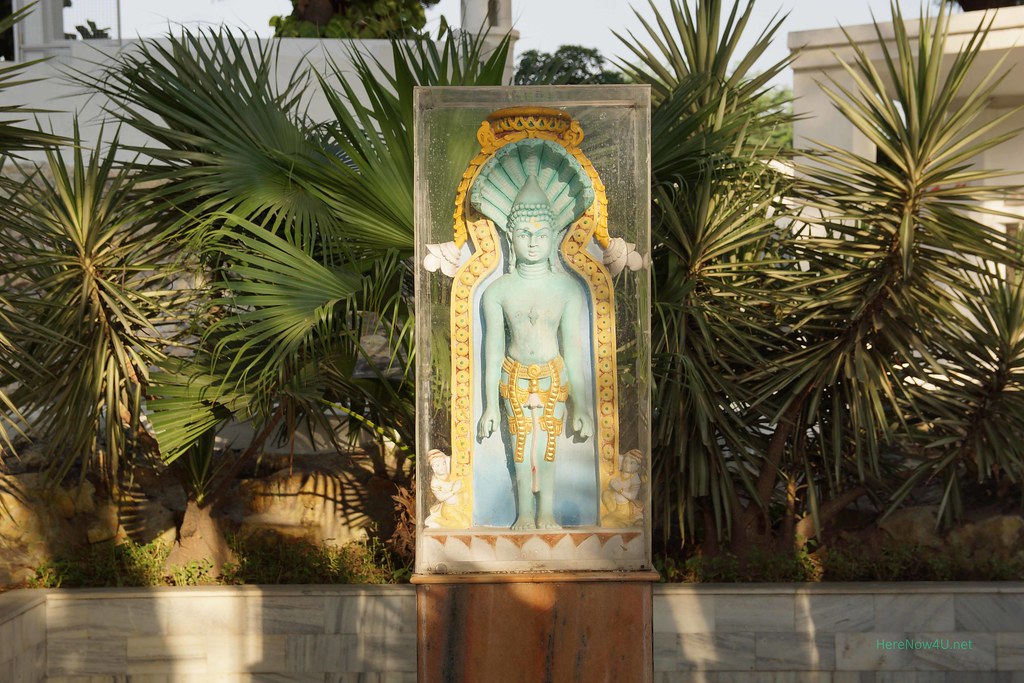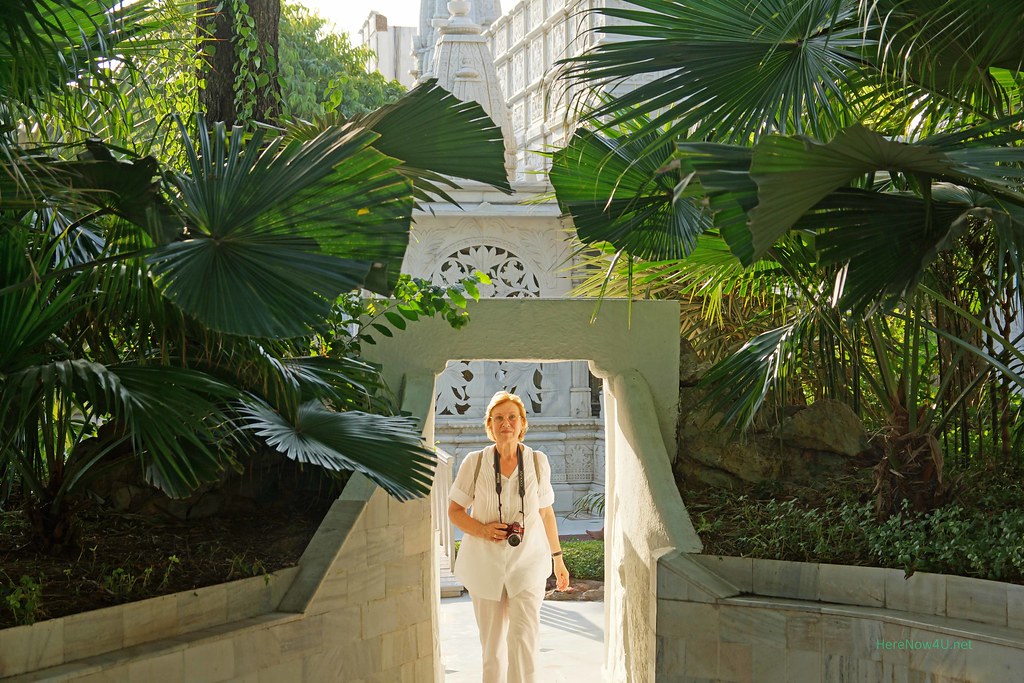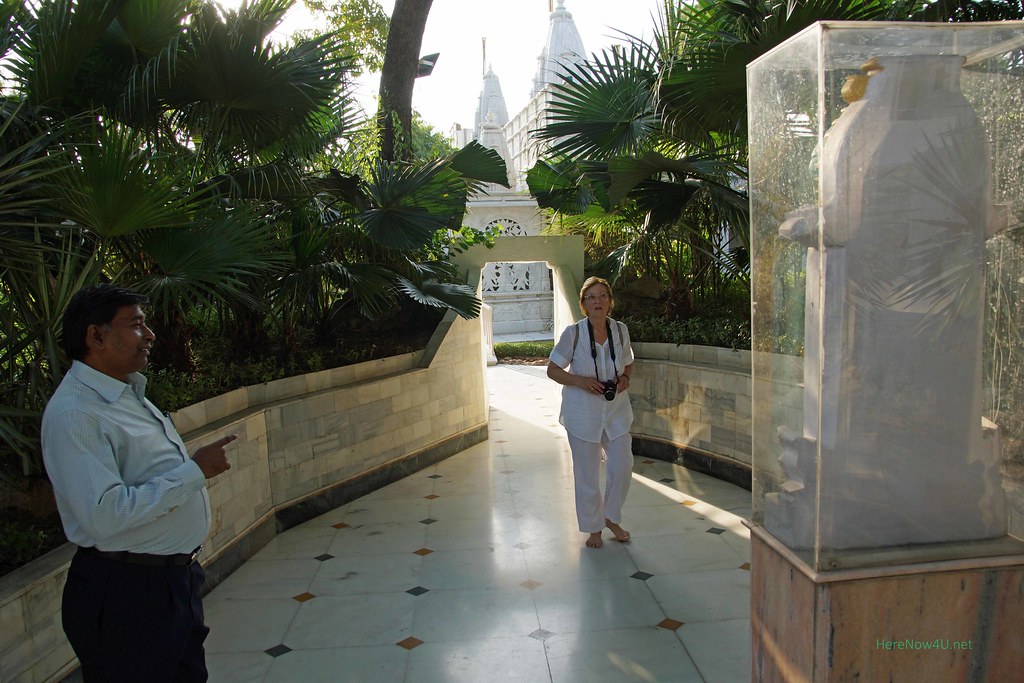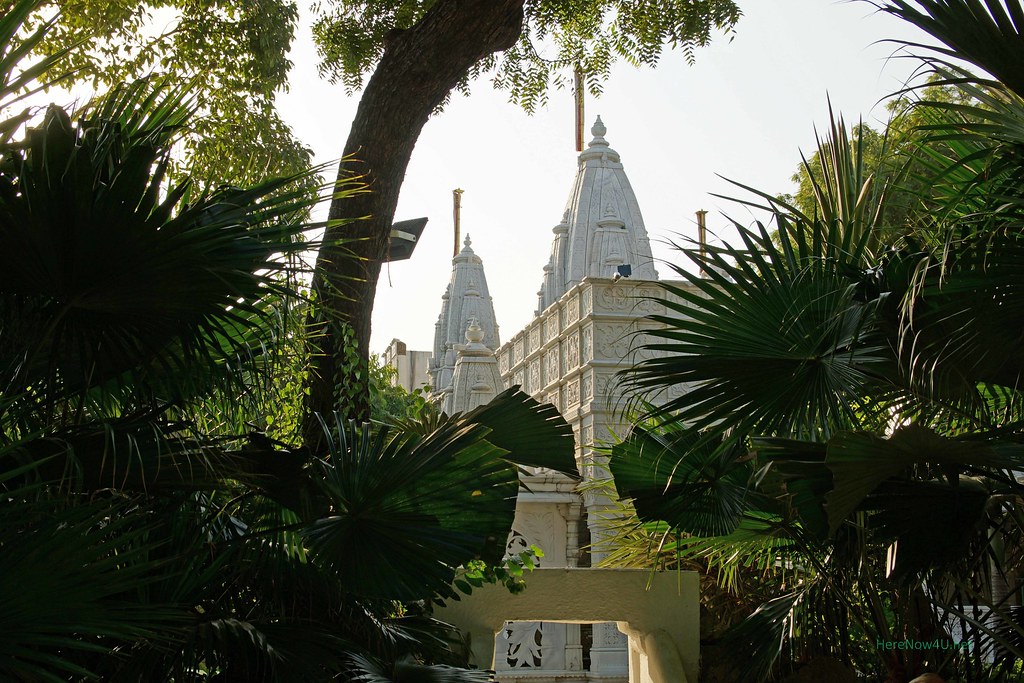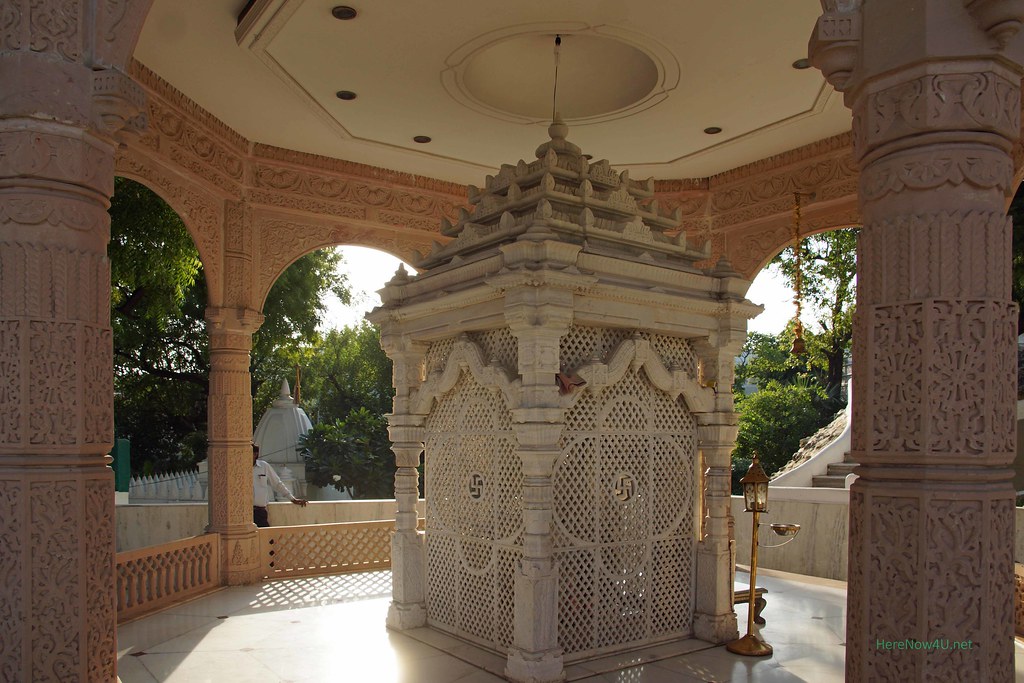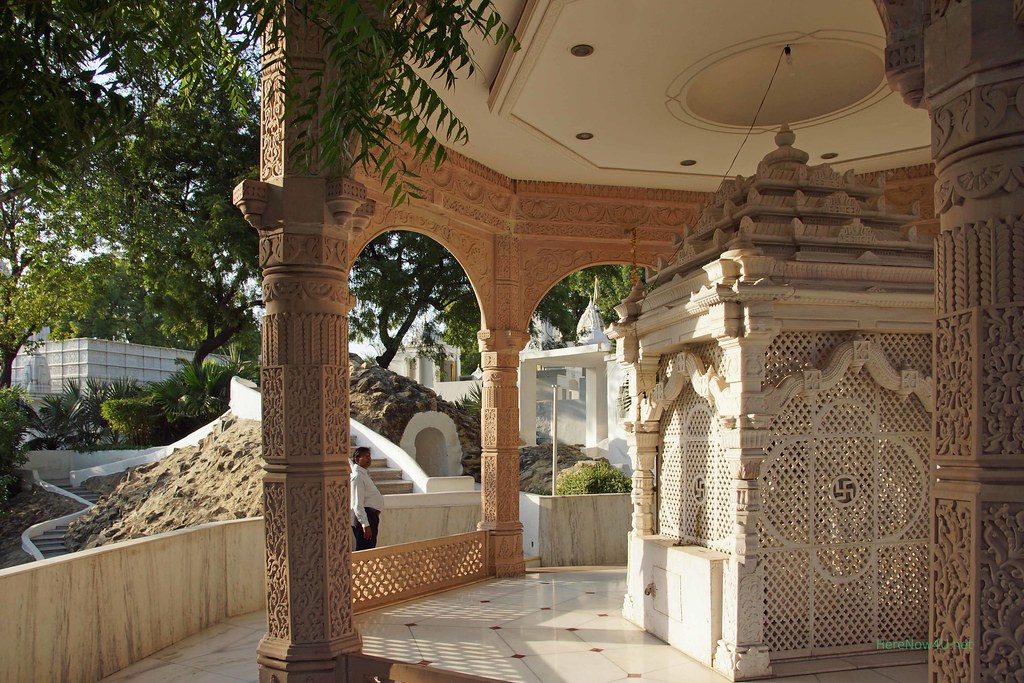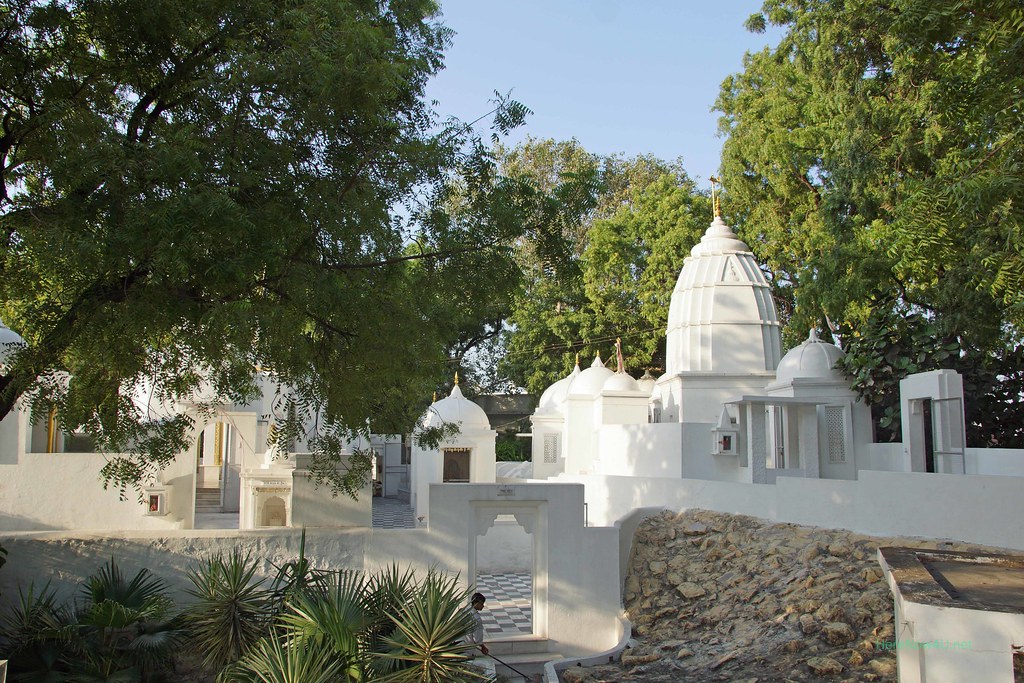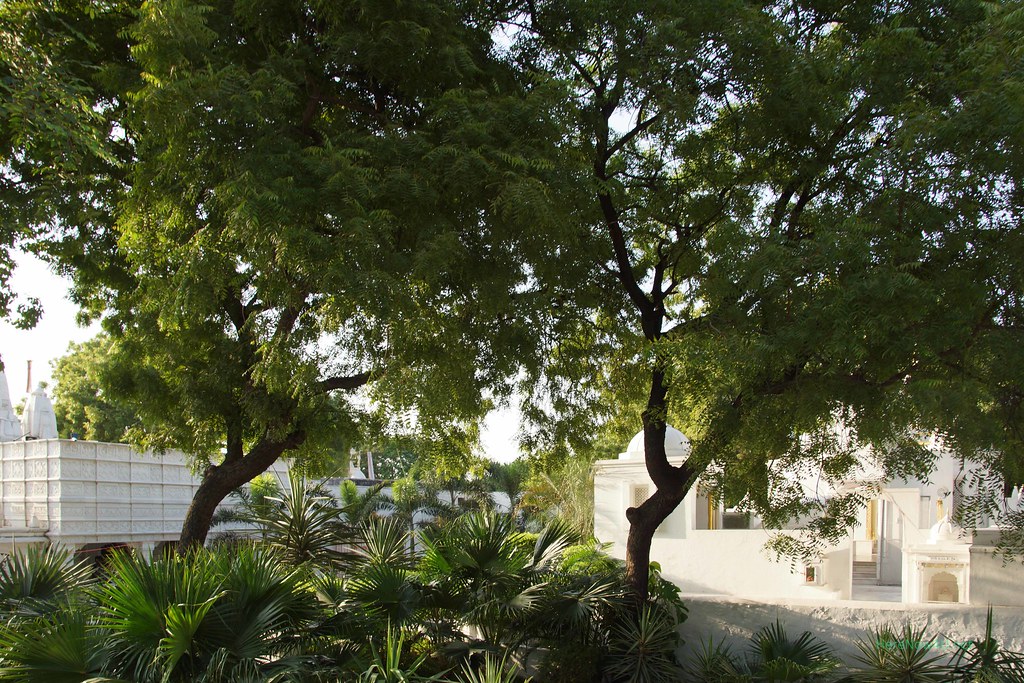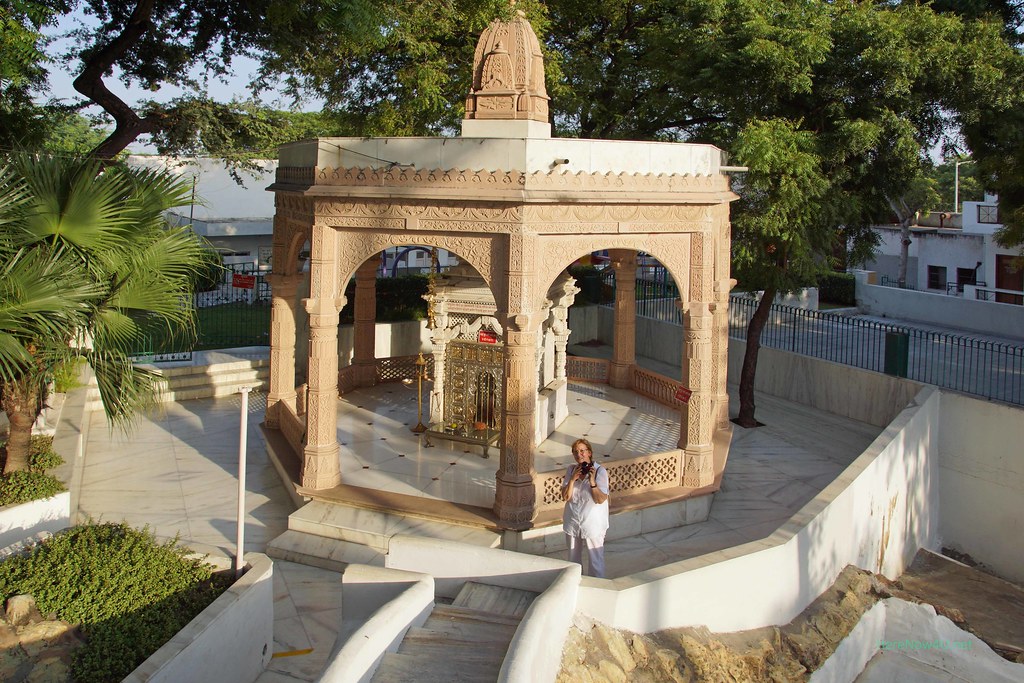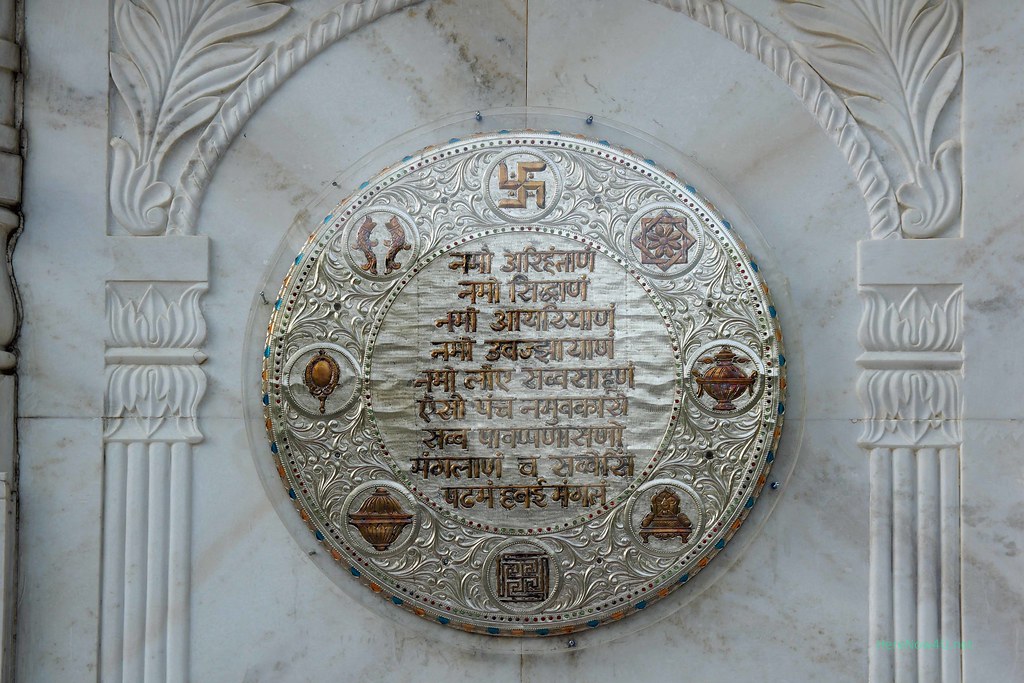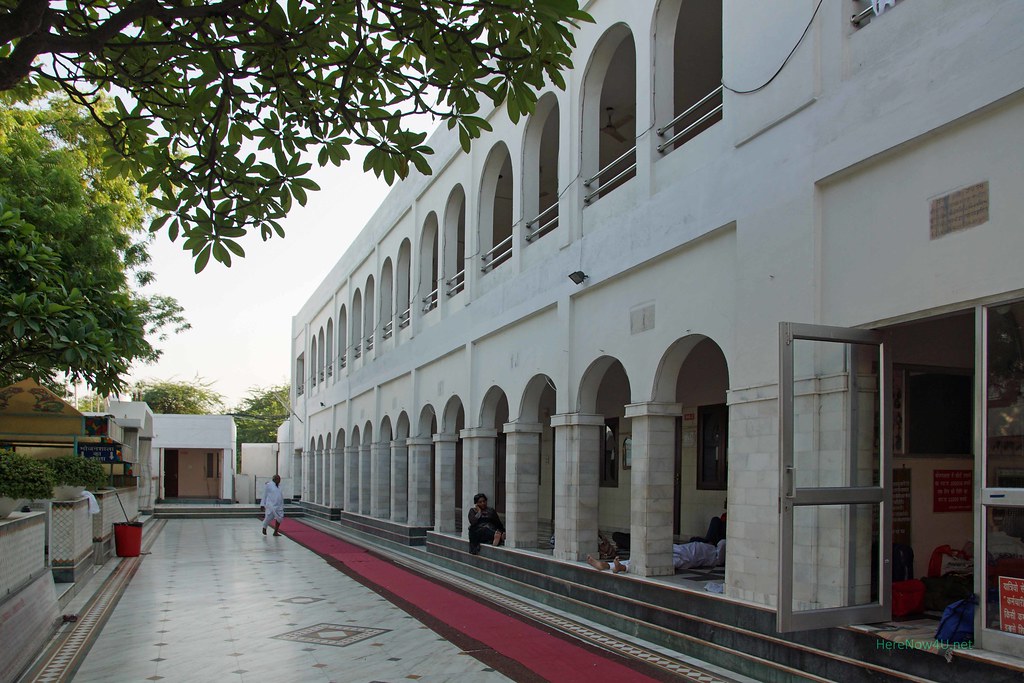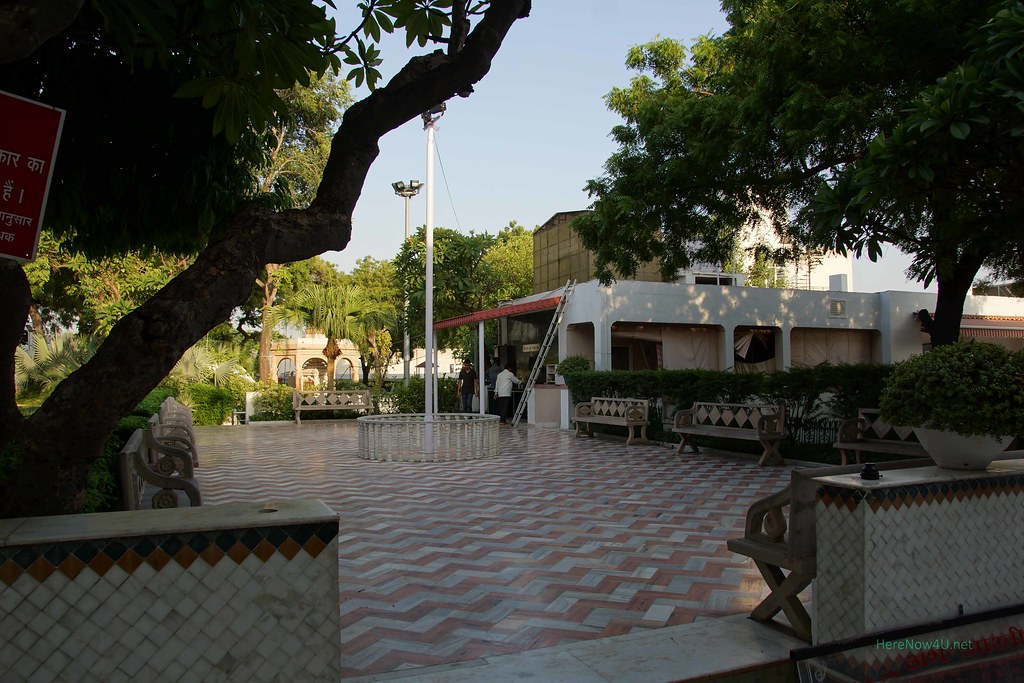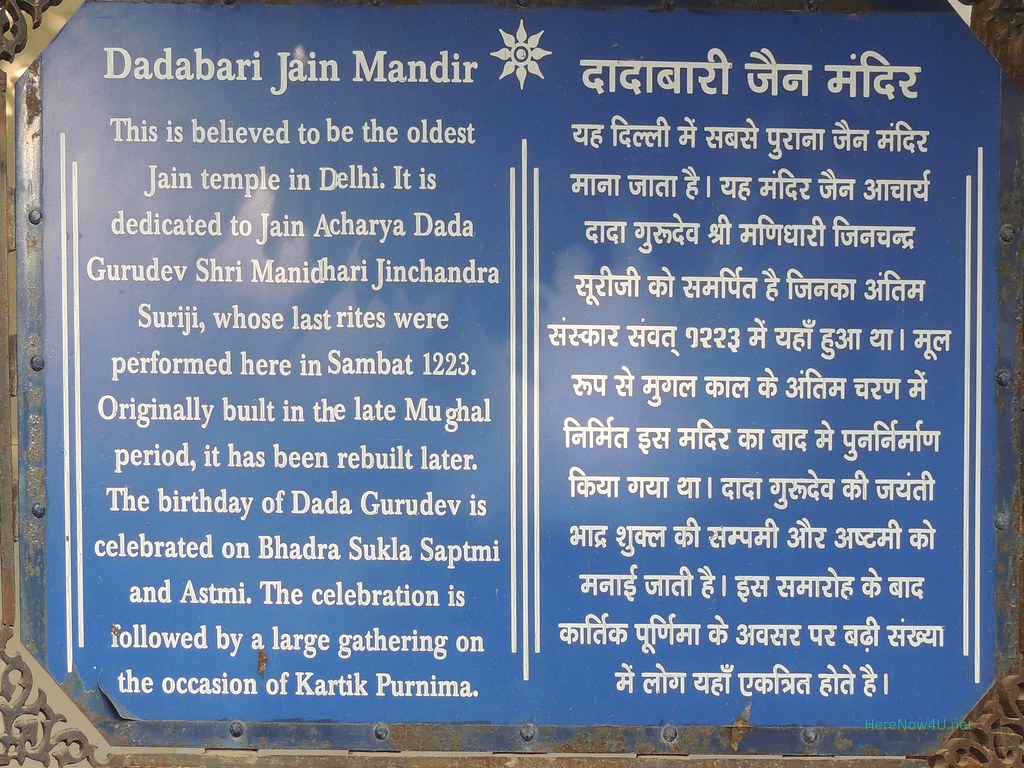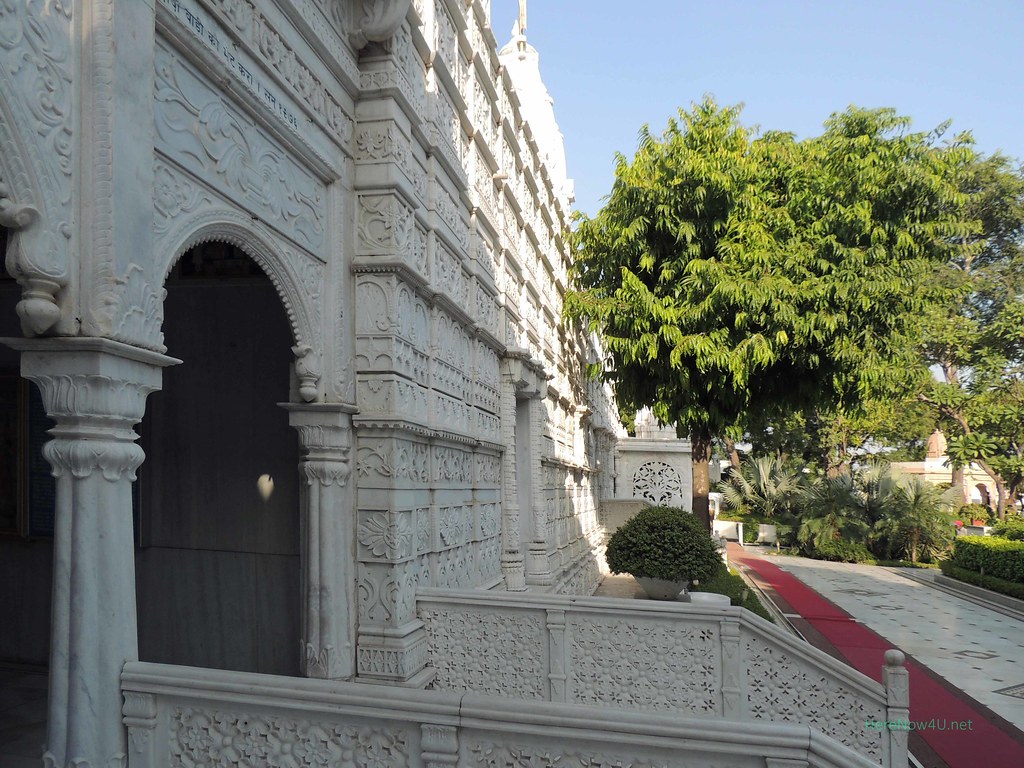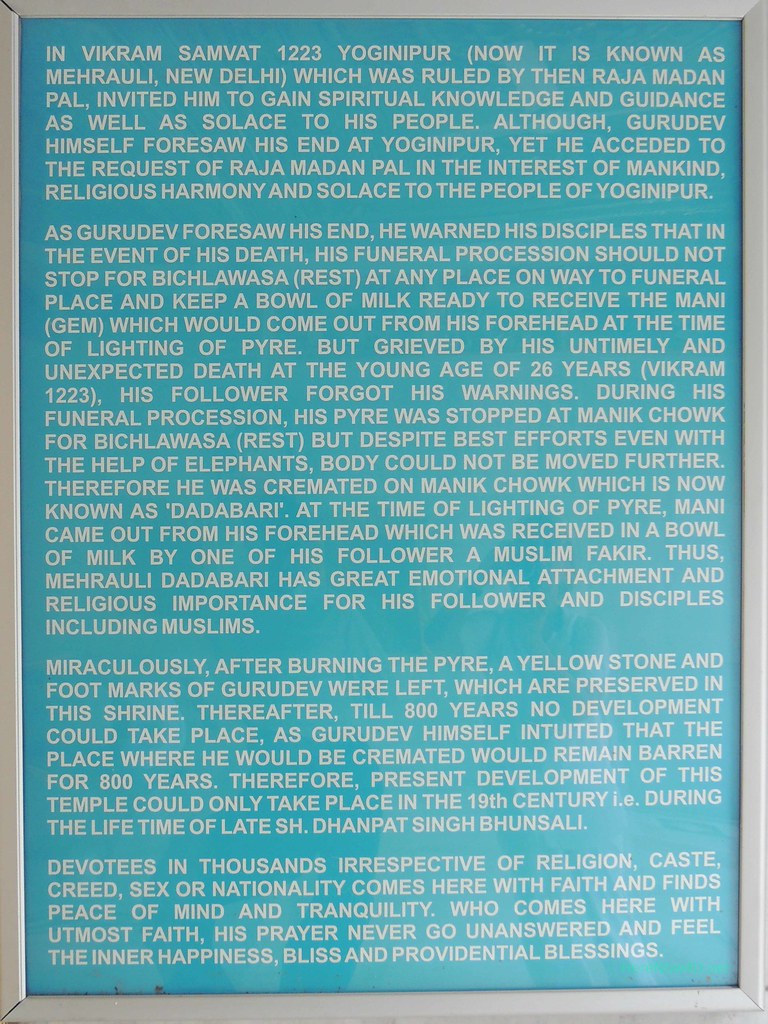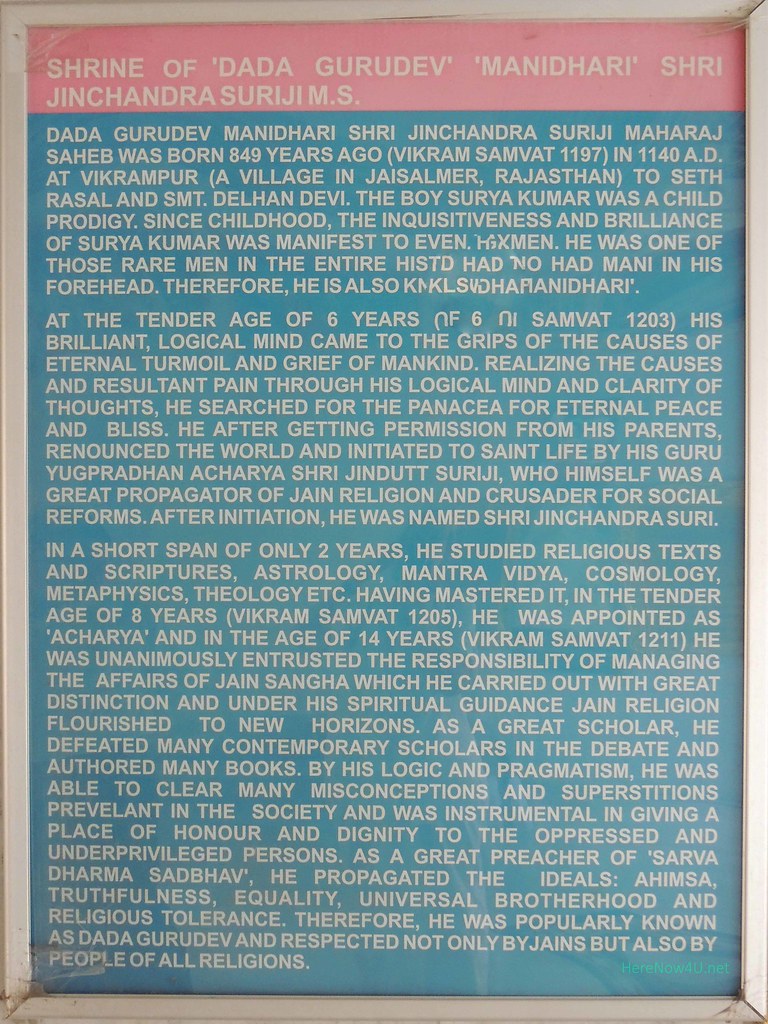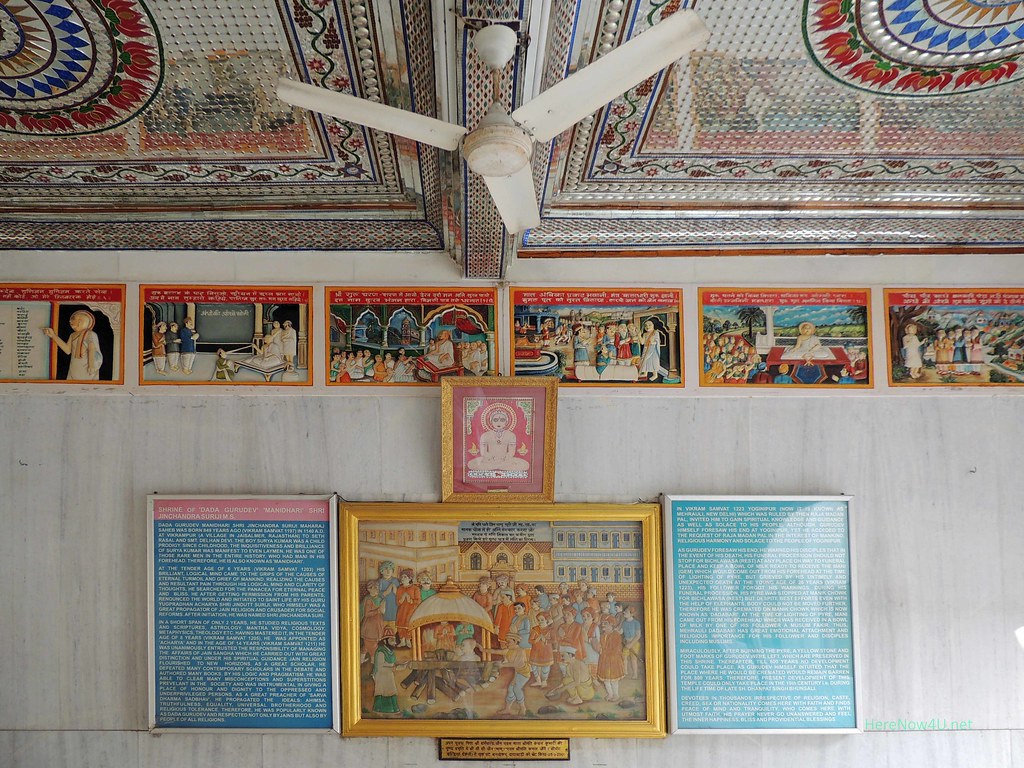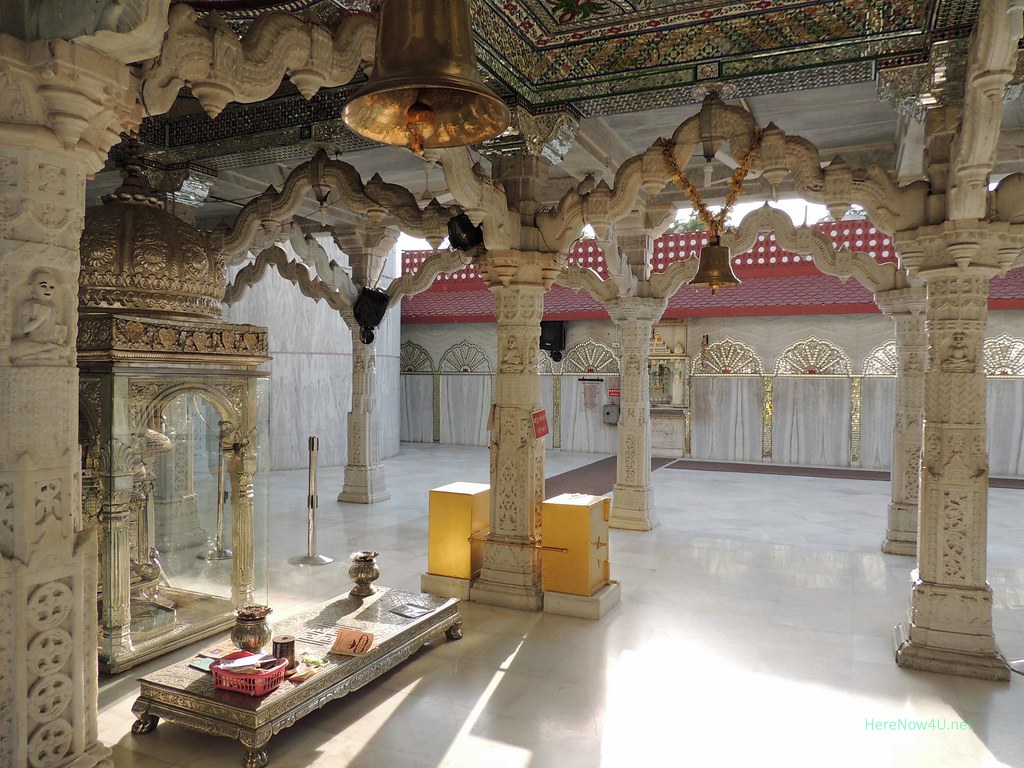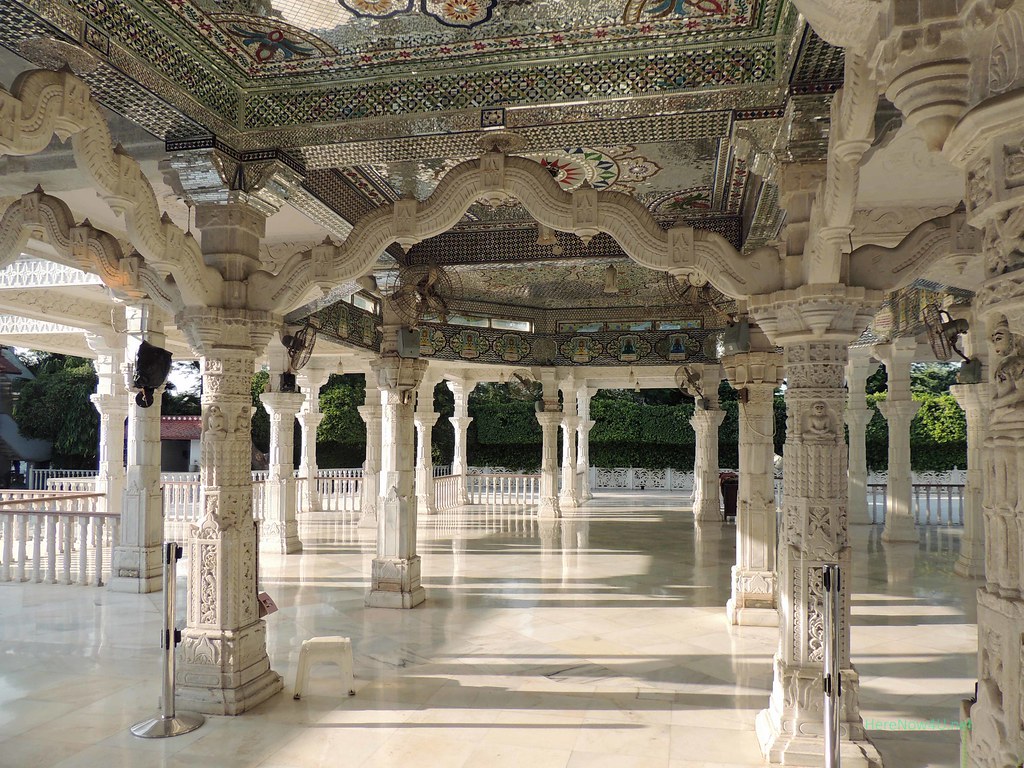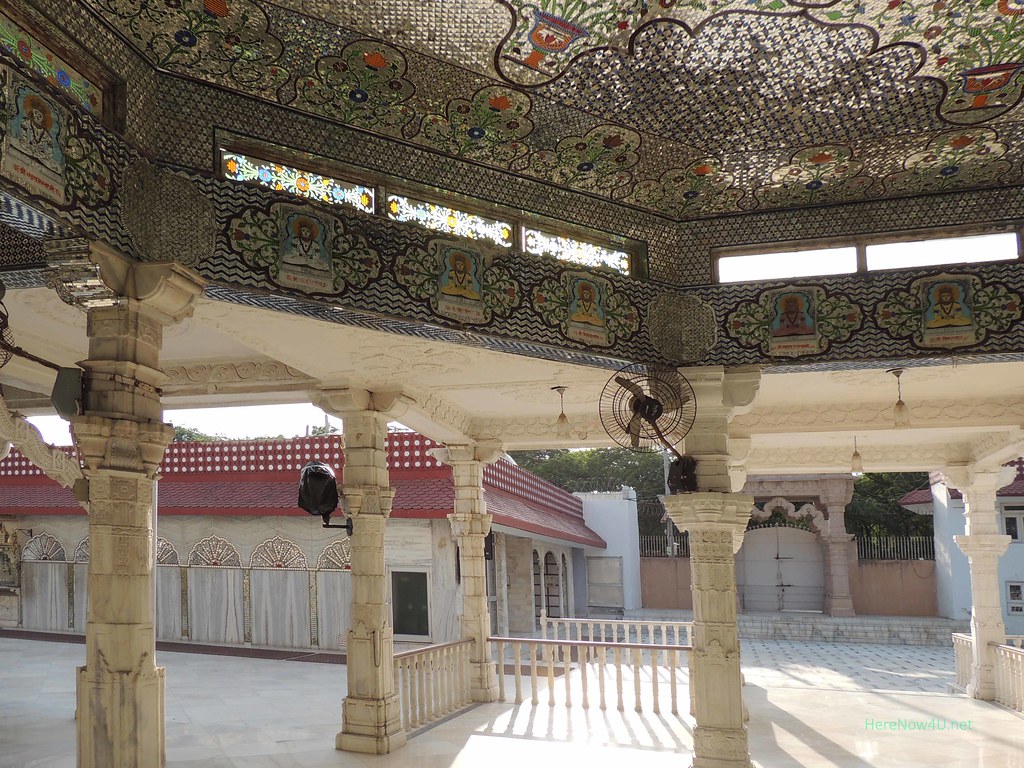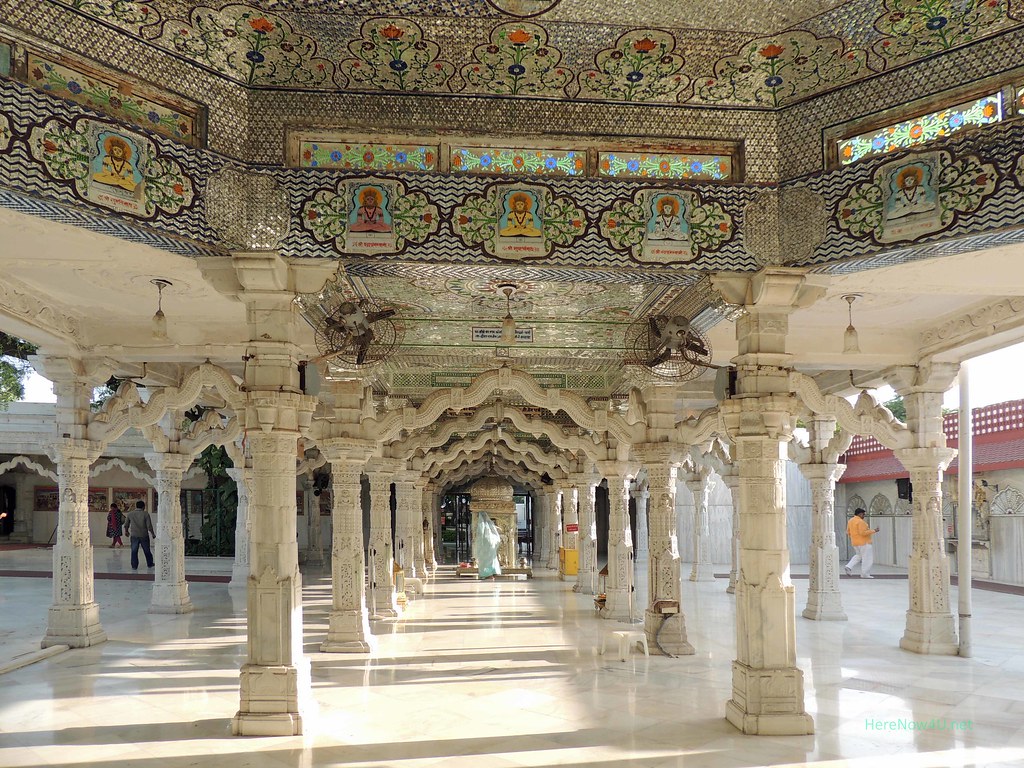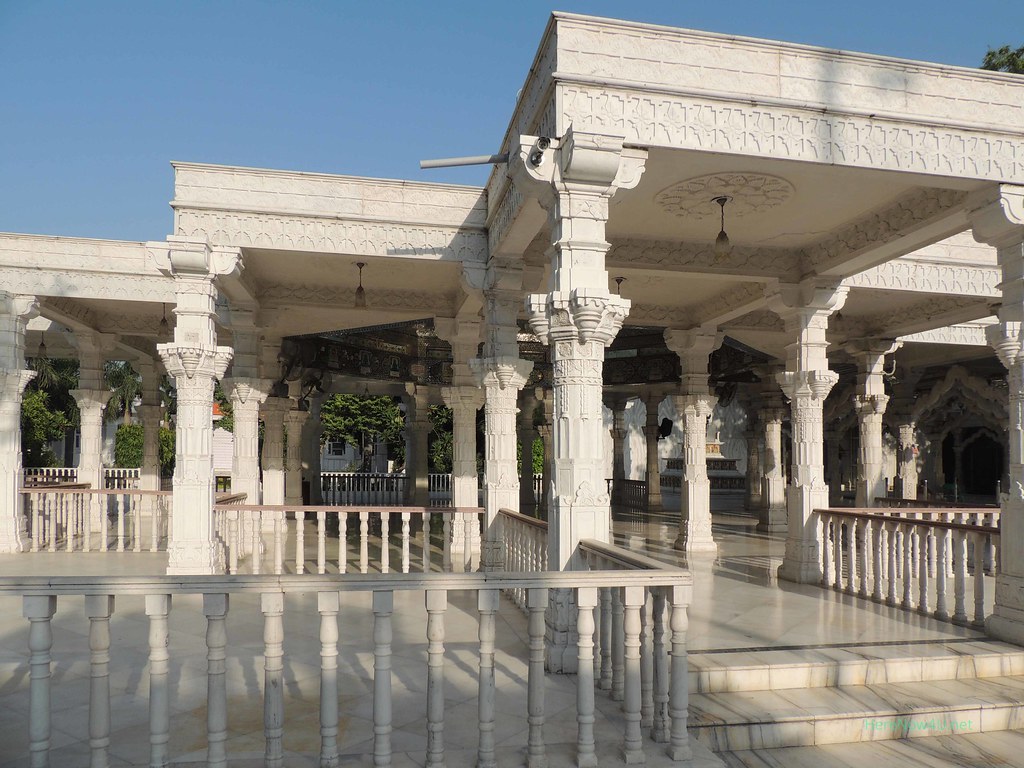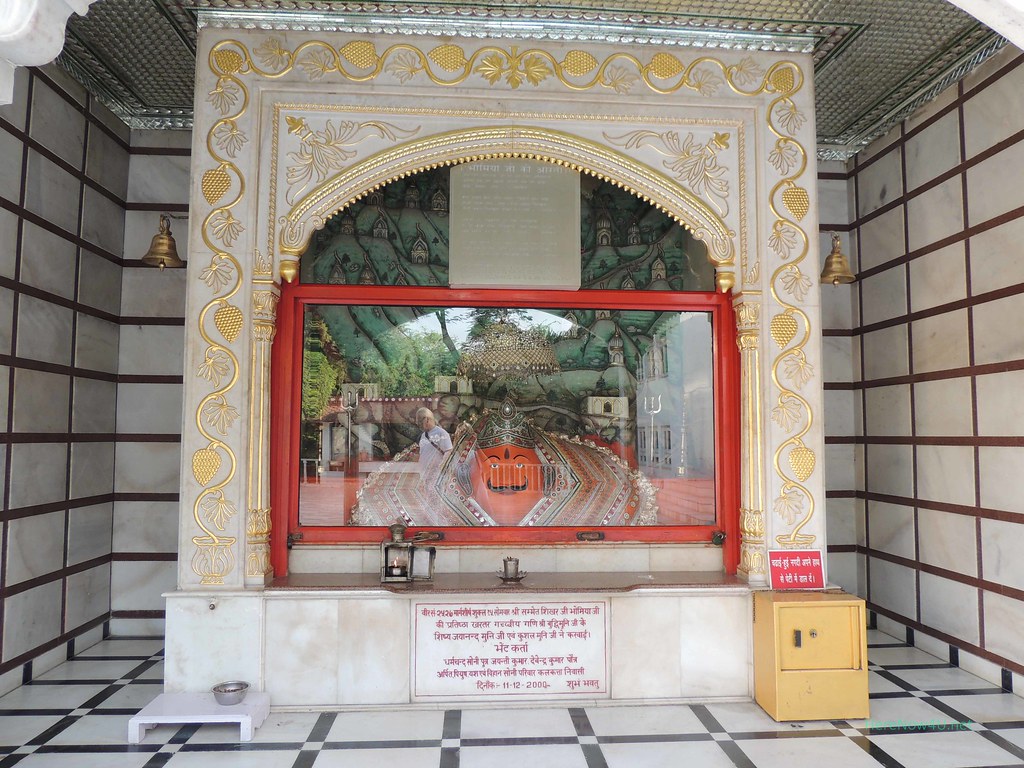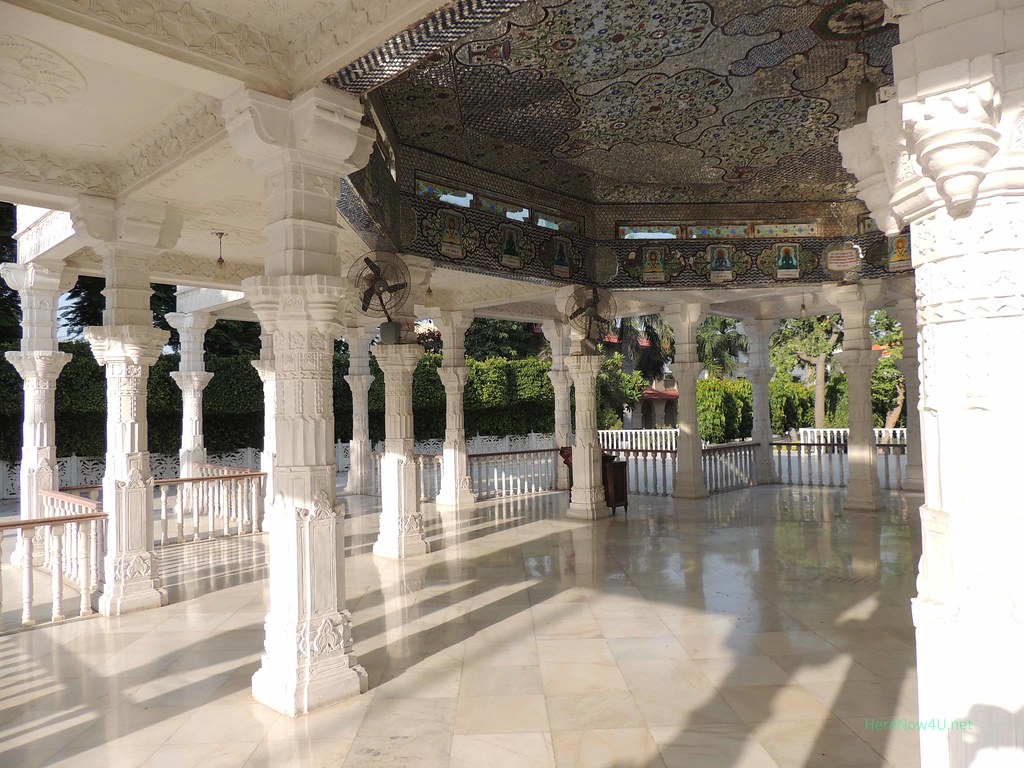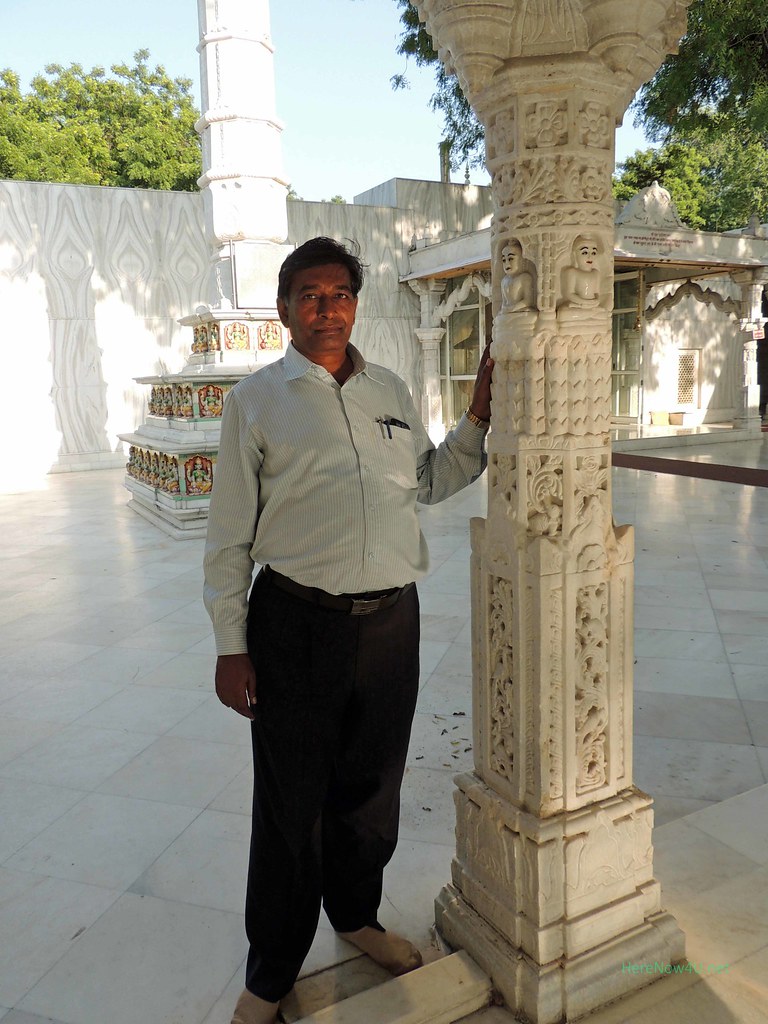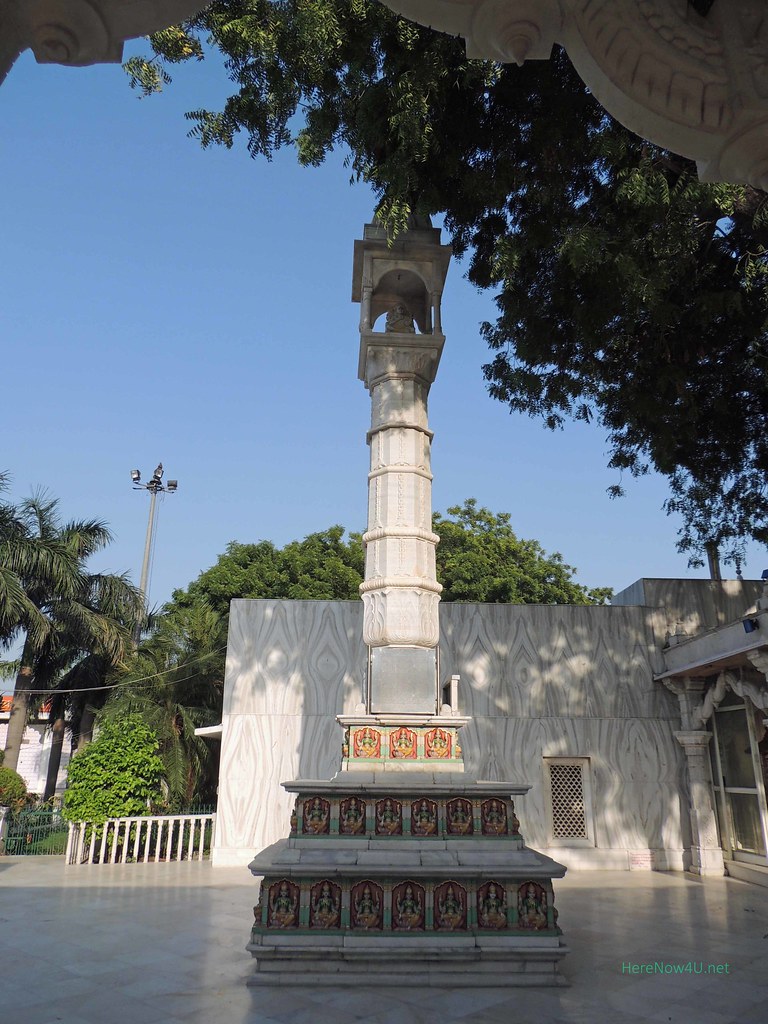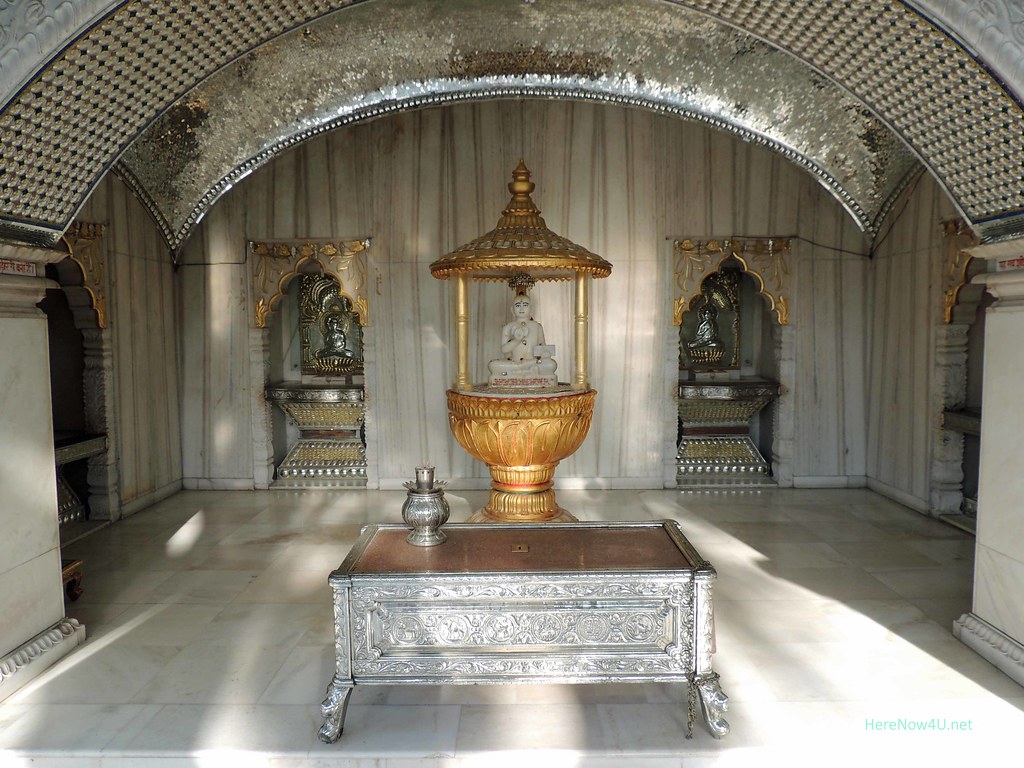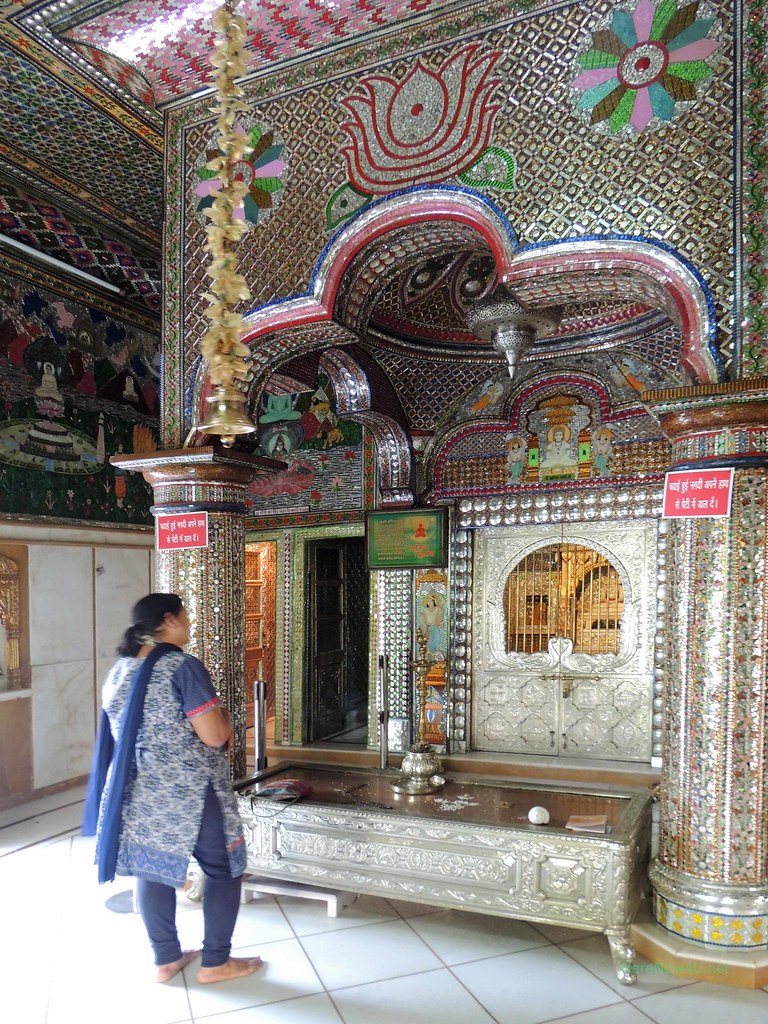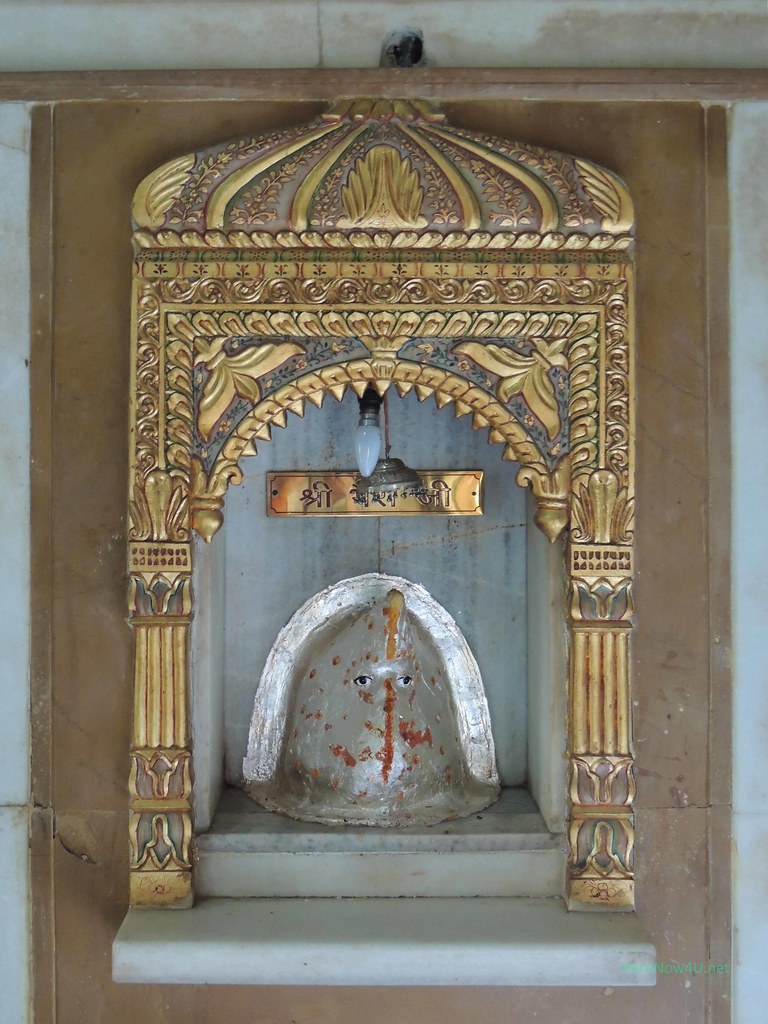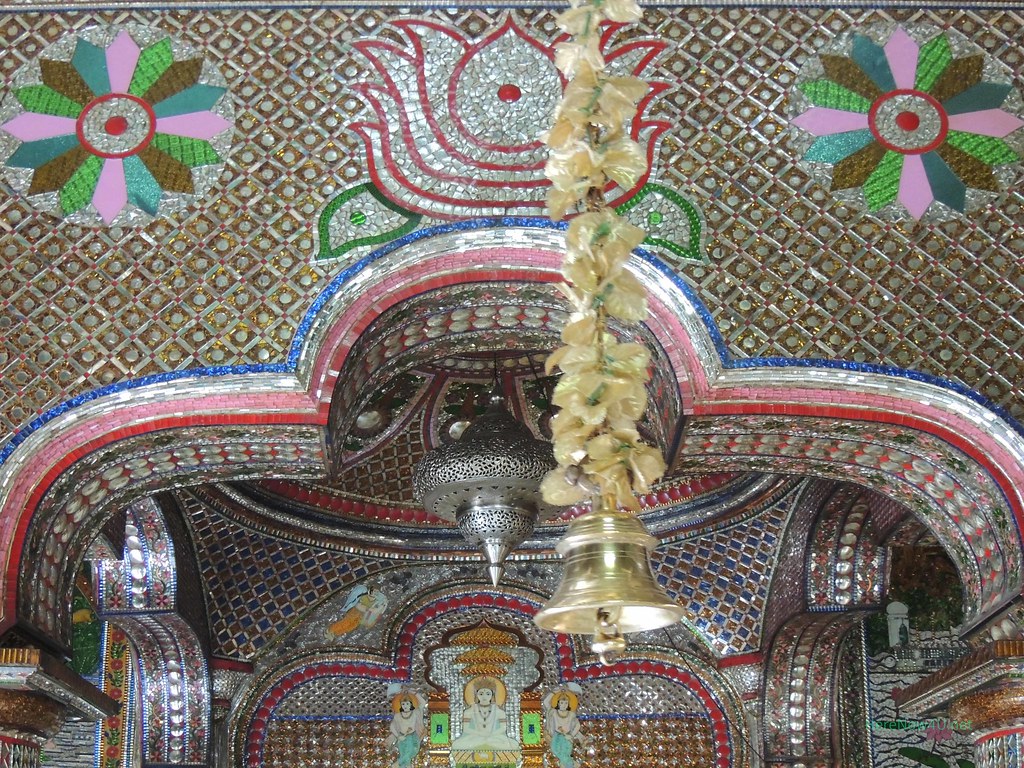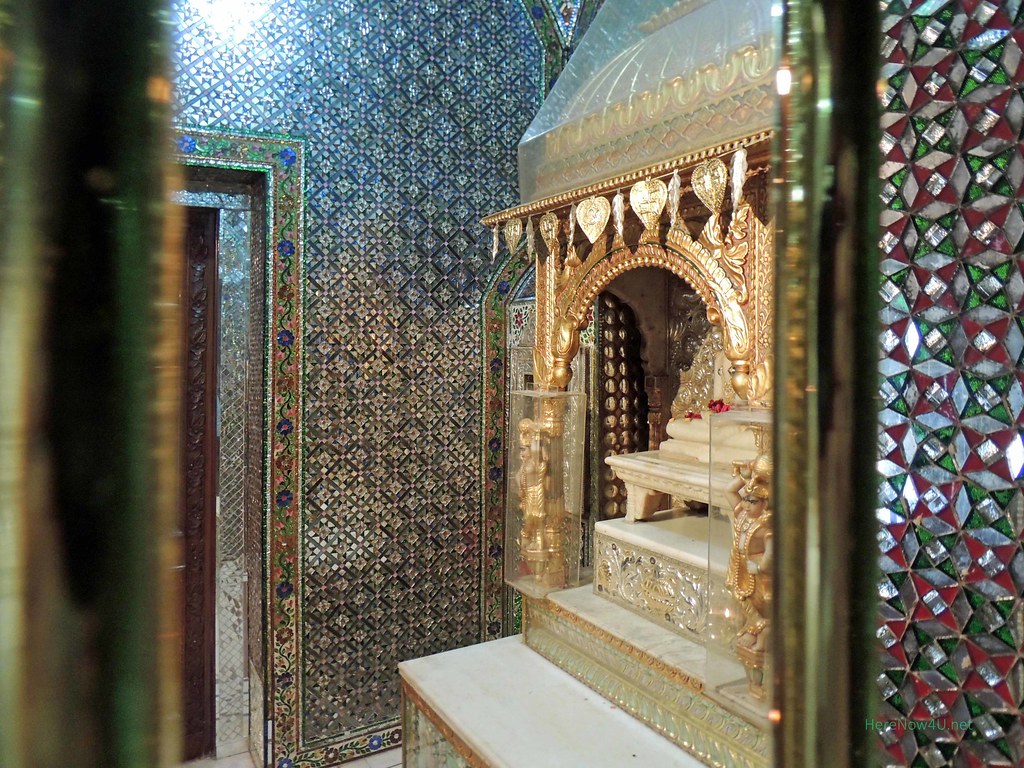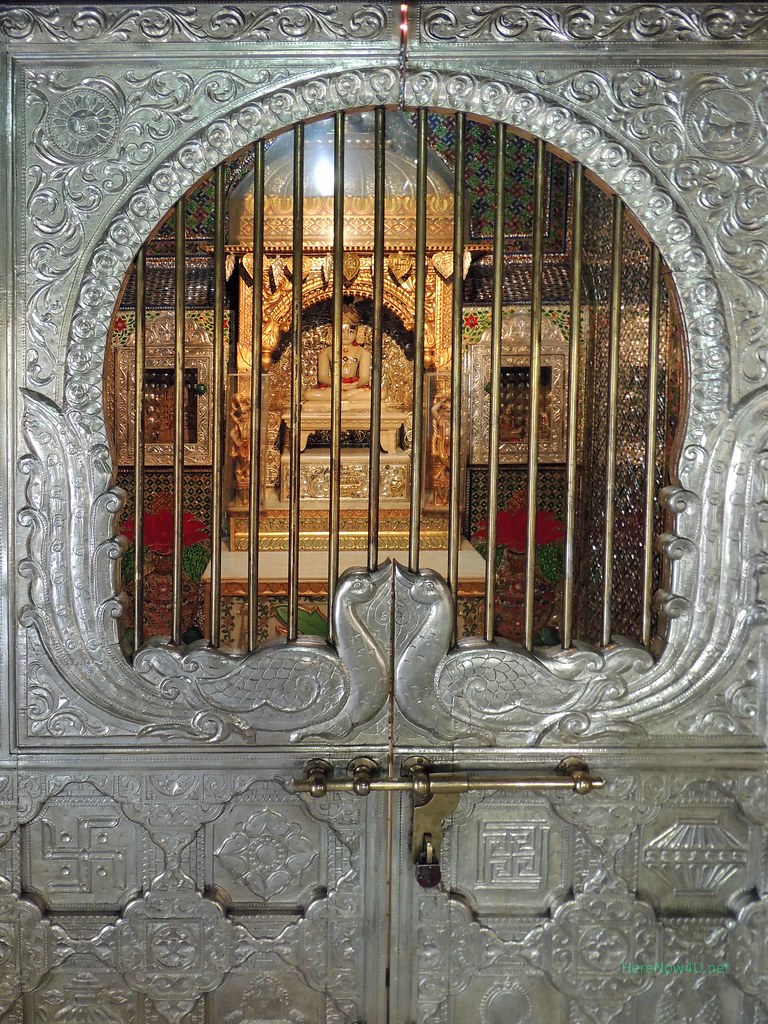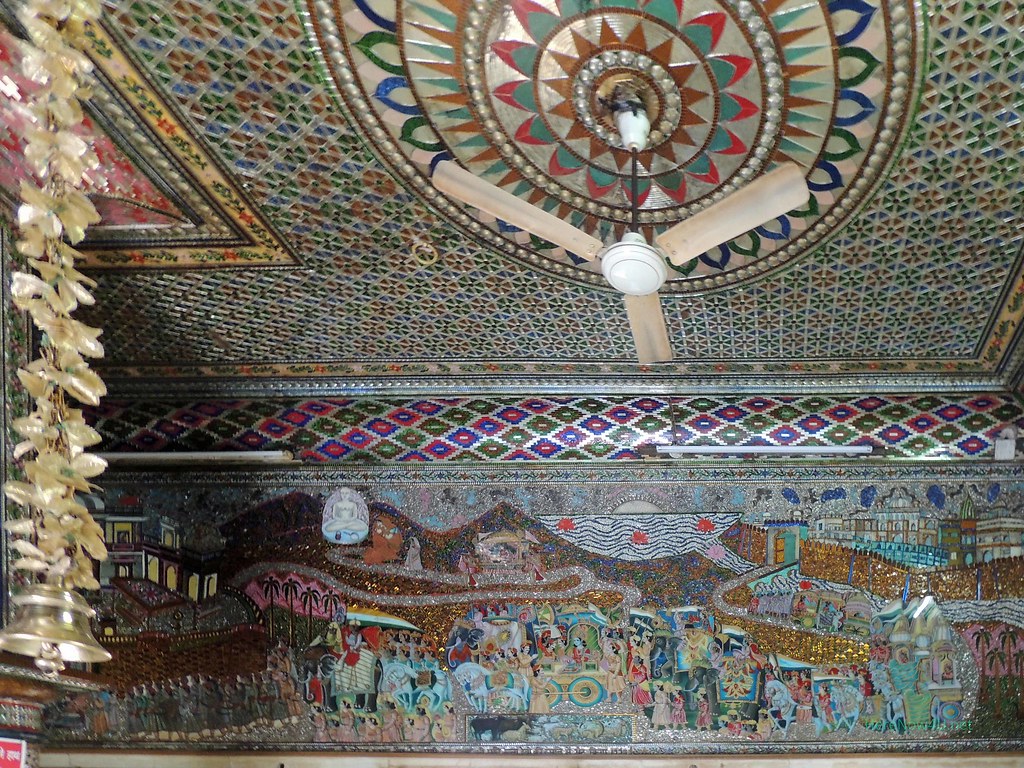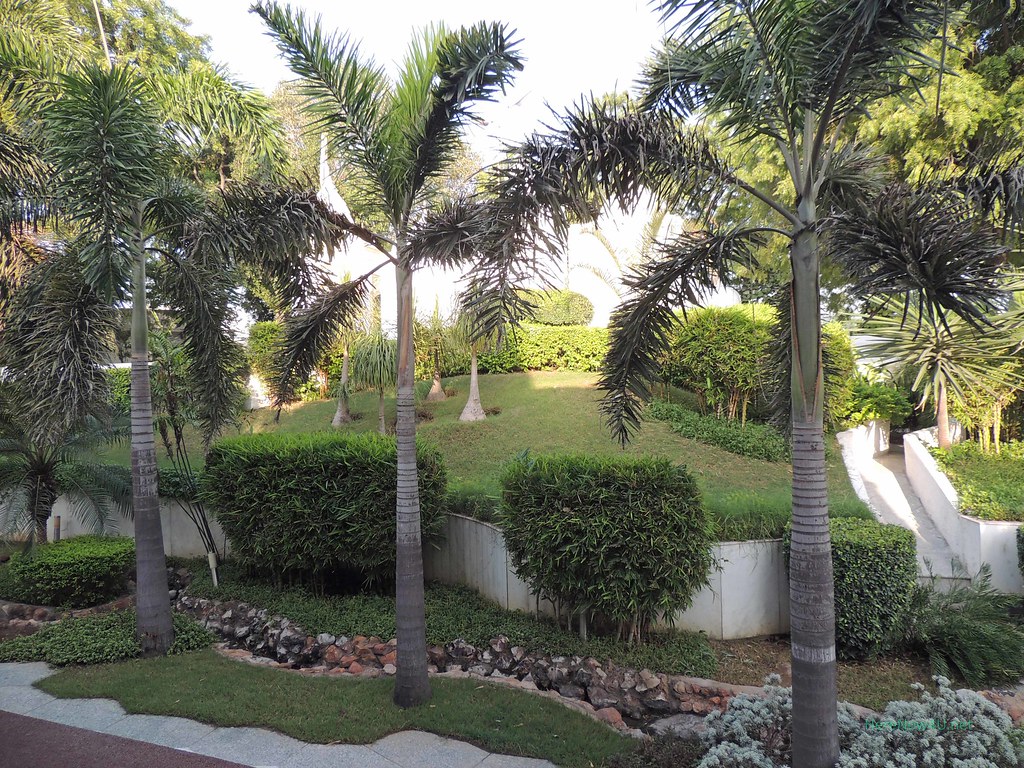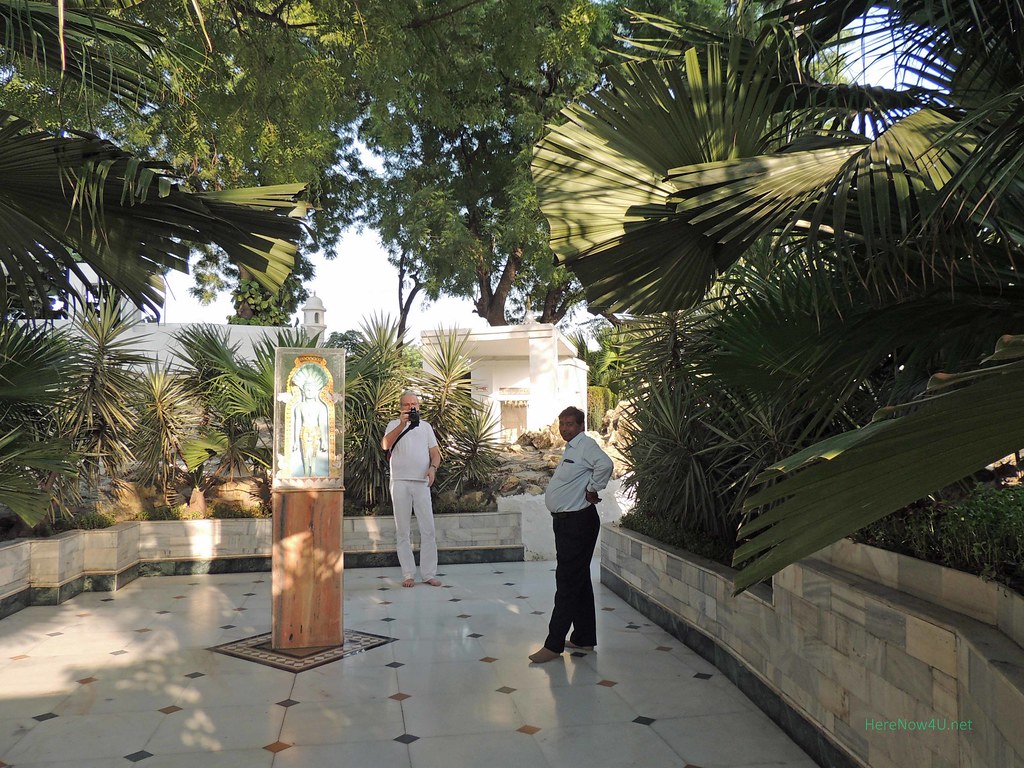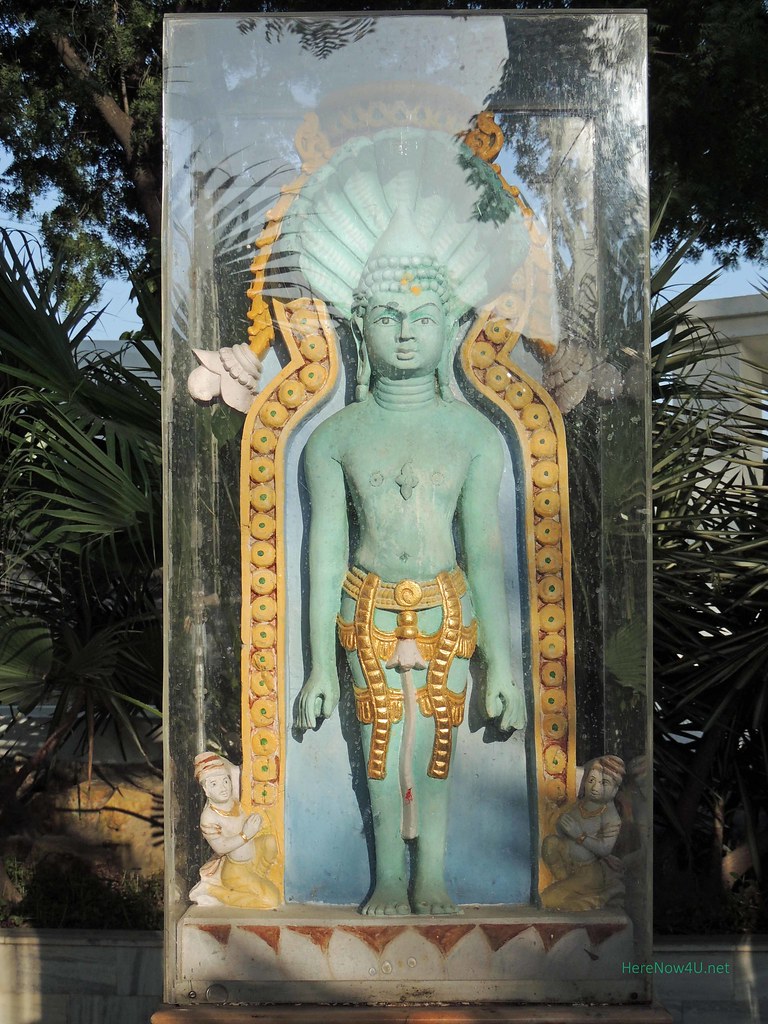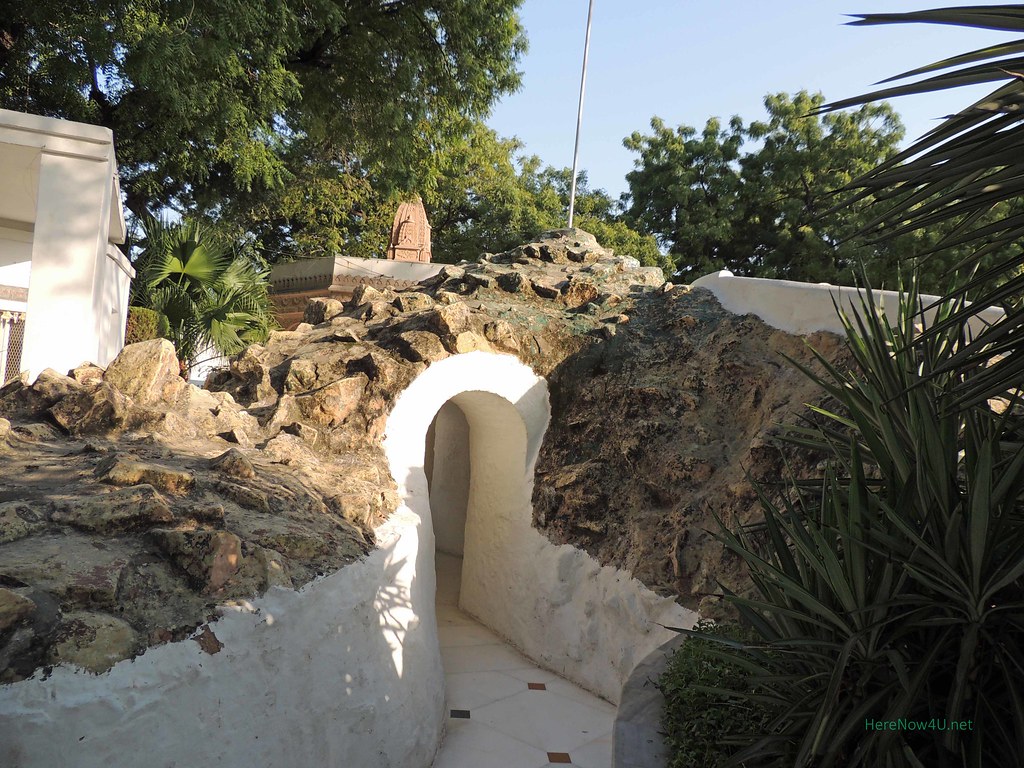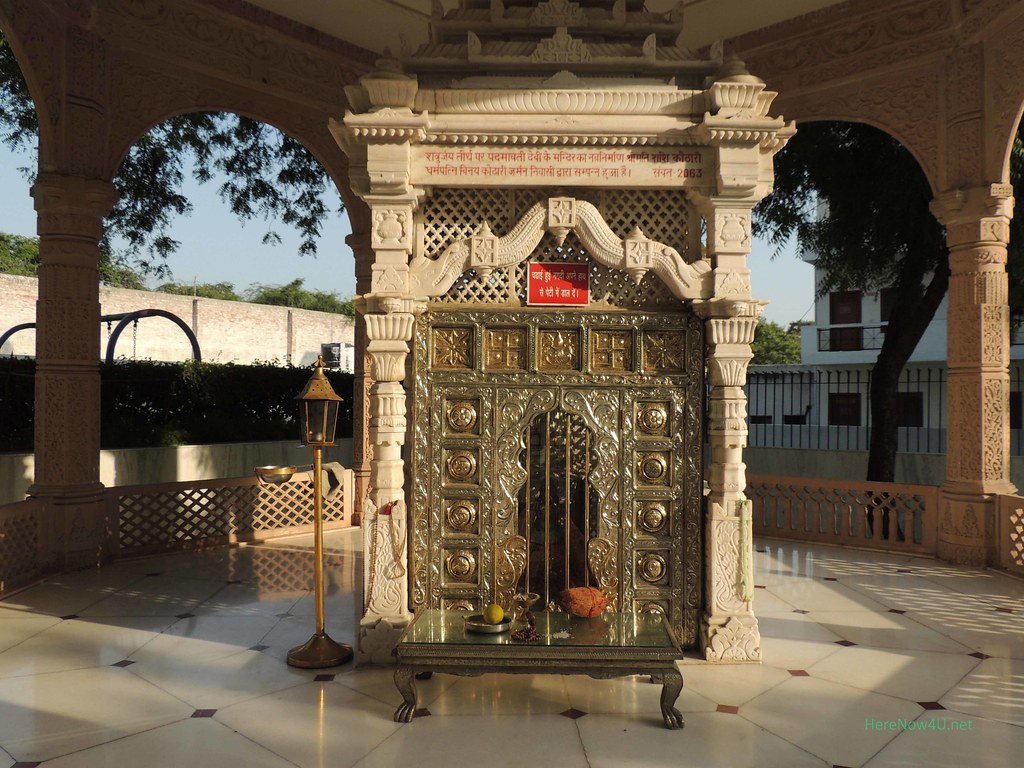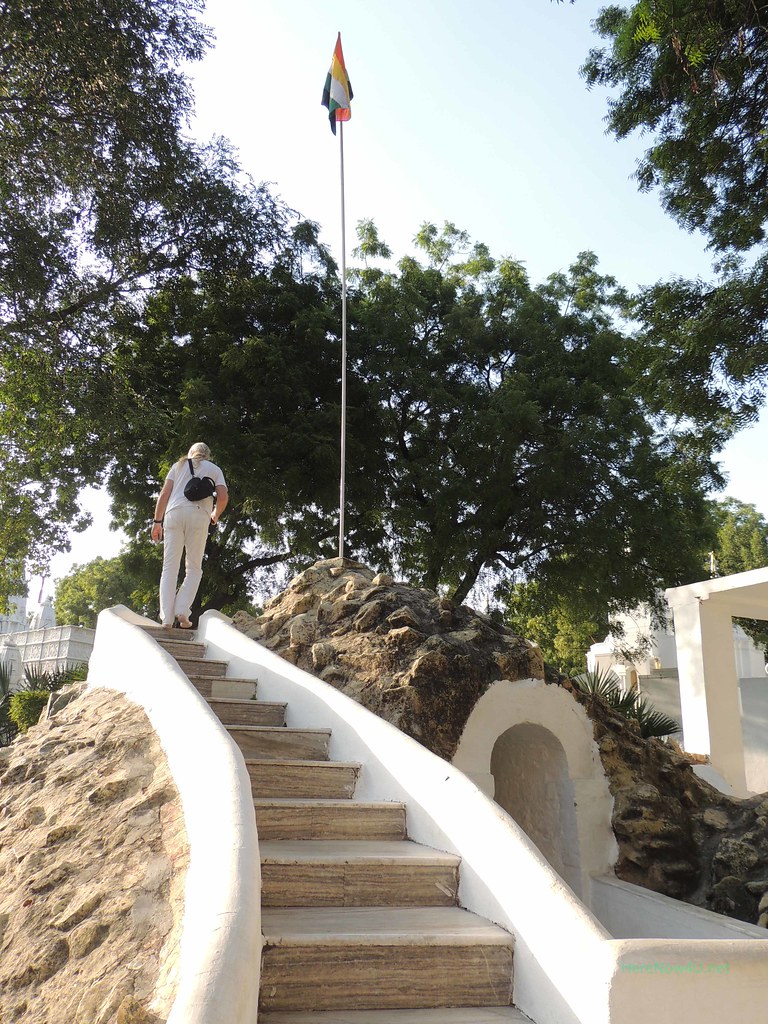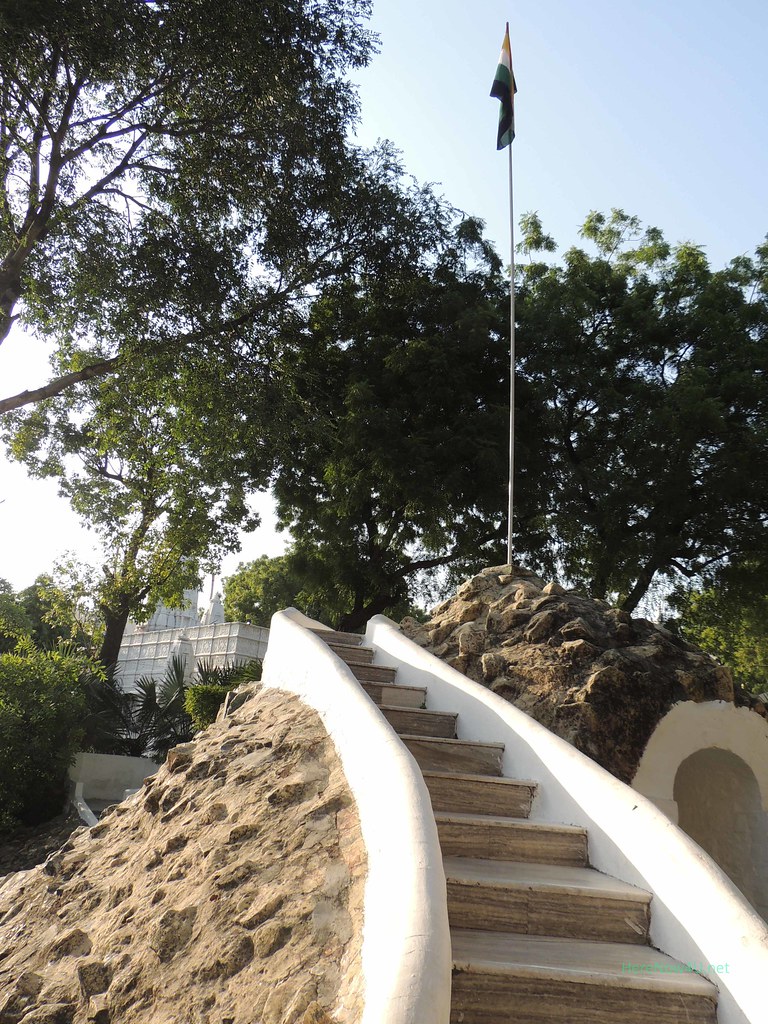Surprisingly the same afternoon the opportunity was offered to us to visit Delhi Mehrauli Dadabari Jain Temple. The temple is situated in the same south-western area of Delhi, in Mehrauli, as ASK, not far from the airport. Car and driver were already waiting for us as we were told by our friends of the conference organising team. Of course we did not miss the chance, and shortly thereafter we sat in the car. Sushil Bafana immediately had offered to accompany us which we voluntarily accepted. During former visits to temples it was very helpful to have someone with us knowing the language of the country. After a short drive only the three of us reached the destination.
Since quite some time we got interested in temple complexes displaying Jain culture. Plenty of Jain Sangha are practicing idolatry and visiting temples. There not only the Jina are venerated and praised, but also important Acharyas and spiritual teachers are commemorated. Their statues or images are worshipped or approached in a separate area of the temple complex, apart from the Tirthankara or Tirthankaras the temples are dedicated to. Rather often they are erected on places from which encounters between the visible gross and the invisible subtle world or memorable incidents are passed over. These are holy places for reflection and peace where subtle vibrations are concentrated and one’s own subtle energies more easily than elsewhere can be experienced. The joint focus on higher realities results among the visitors in feelings of being refreshed and uplifted through celebration of rites together. Here one can entrust oneself to life in all its facets in a safe environment and regain one’s strength through contemplation on the wonderful works of art charged with the energy of the depicted. From most of the old temples a miraculous history has been passed over, bringing the charm of the area near to the visitors. The up and down of daily life remains outside, and this is empowering the Self.
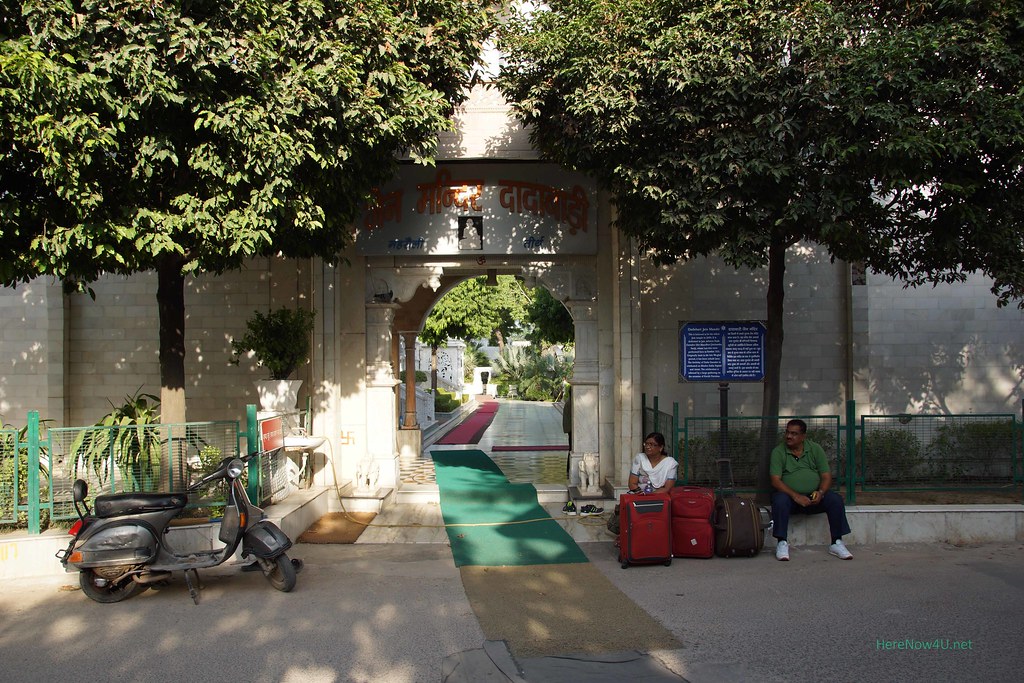
From the stand where the shoes are handed over one crosses the road on outdoor carpets to get to the entry. On one side a couple with baggage was waiting for a taxi.
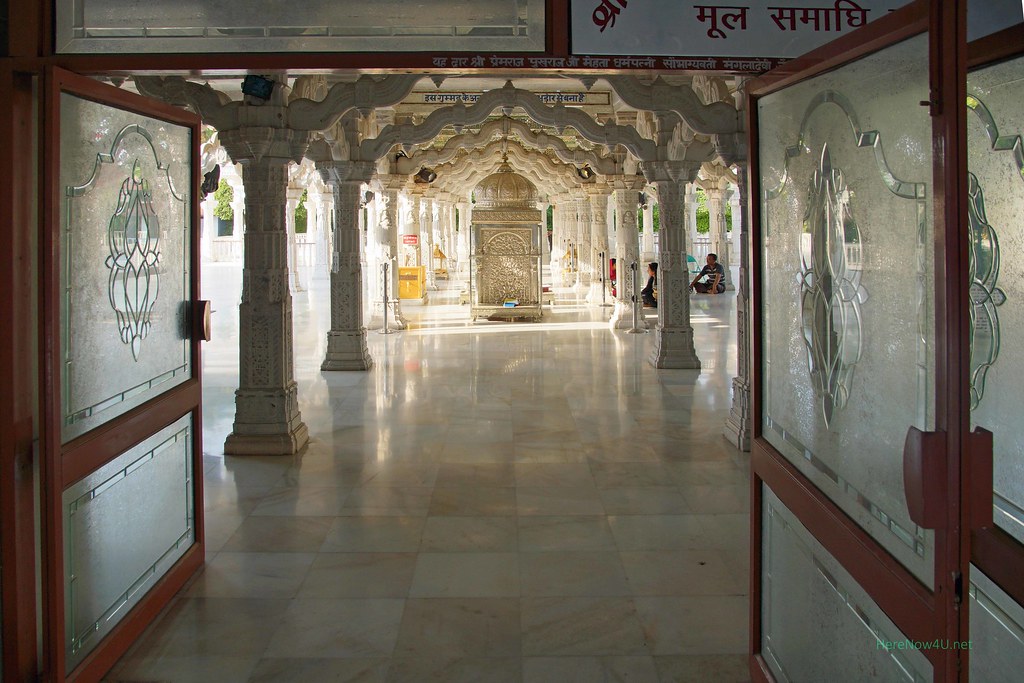
During the day all doors are wide open, as the temple is not only visited by Jains, but also by Muslims and Hindus.

In this shrine until nowadays the urn of Dada Guru Jina Chandra Suri Manidhari is kept. The saint is also adored by Muslims and Hindus.
Jina Chandra Suri Manidhari (the jewel holder) was born 1141 CE in Jaisalmer, Rajasthan, at the outskirts of Thar Desert. At the age of 6 he got the permission of his parents to continue his life as a monk. His Guru Jinadatta Suri, himself a great scholar, saint, social reformer and one of the Dada Gurus, gave the name of Jinchandra Suri Manidhari to him at the occasion of the latter’s Diksha. At the age of 8 he was appointed as Acharya because of his profound knowledge in philosophic scriptures, cosmology, metaphysics, mantras, and astrology. When he was 14 years old the leadership of the Sangh was transferred to him. During the 12 years of his leadership he untiringly stood up for religious and social reforms. He preached Ahimsa, religious tolerance, equity and universal brotherhood. That was why he was respected and venerated among the Muslim and Hindu communities alike. There he was and is known under the name “Dada Gurudev”. Temple complexes erected for the praise of the Tirthankaras and for that of the Dada Gurus are named Dadabari, Garden of the Dadas. Mehrauli Dadabari further is particular for being the location where Jina Chandra Suri Manidhari’s ashes are kept.
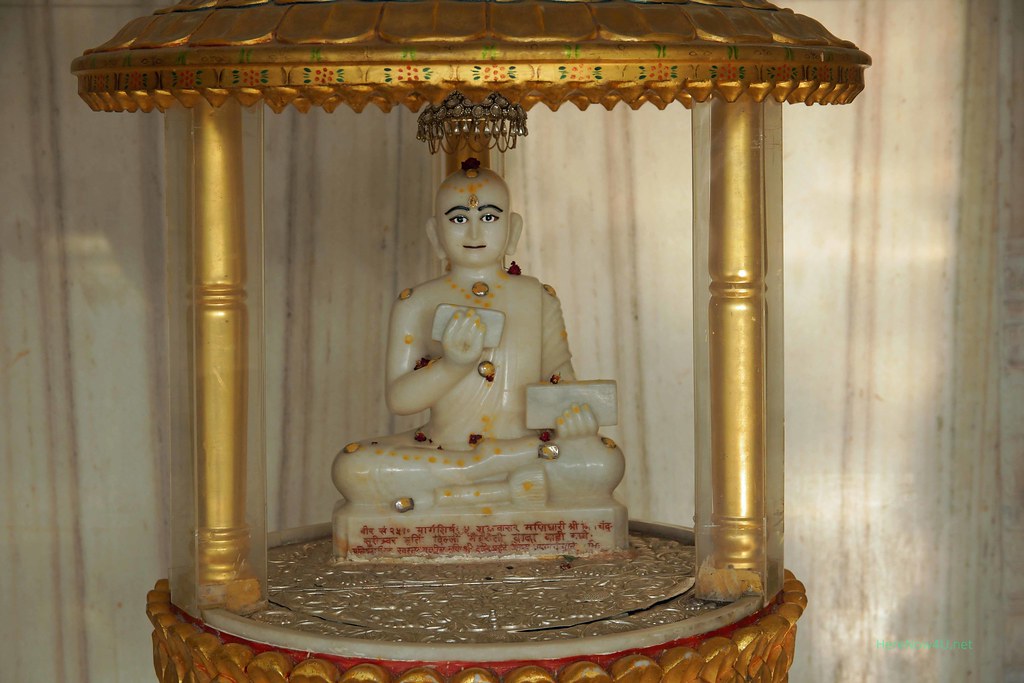
Depiction of „Dada Gurudev“ in Mehrauli Dadabari
At the age of 26 the saint passed his Chaturmas in a district near Delhi, at present Mehrauli, New Delhi, following an invitation of its ruler in spite of his feeling that his earthly existence was going to be completed very soon. Clear-sightedly he instructed his followers in no case to stop with his dead body on the way to his cremation place and when the pyre will be started to receive the jewel coming out of his forehead in a bowl of milk. But over their grief his followers forgot the prophecies of the saint and took a break in Manik Chowk (Mehrauli). After this no one was - not even elephants - able to move his dead body any further. There was no other option than to perform the last rites at Mehrauli. After the cremation was started a Muslim fakir realised the other prophecy and received the gem coming out of the dead saint’s forehead in a bowl of milk according to the saint’s instructions.
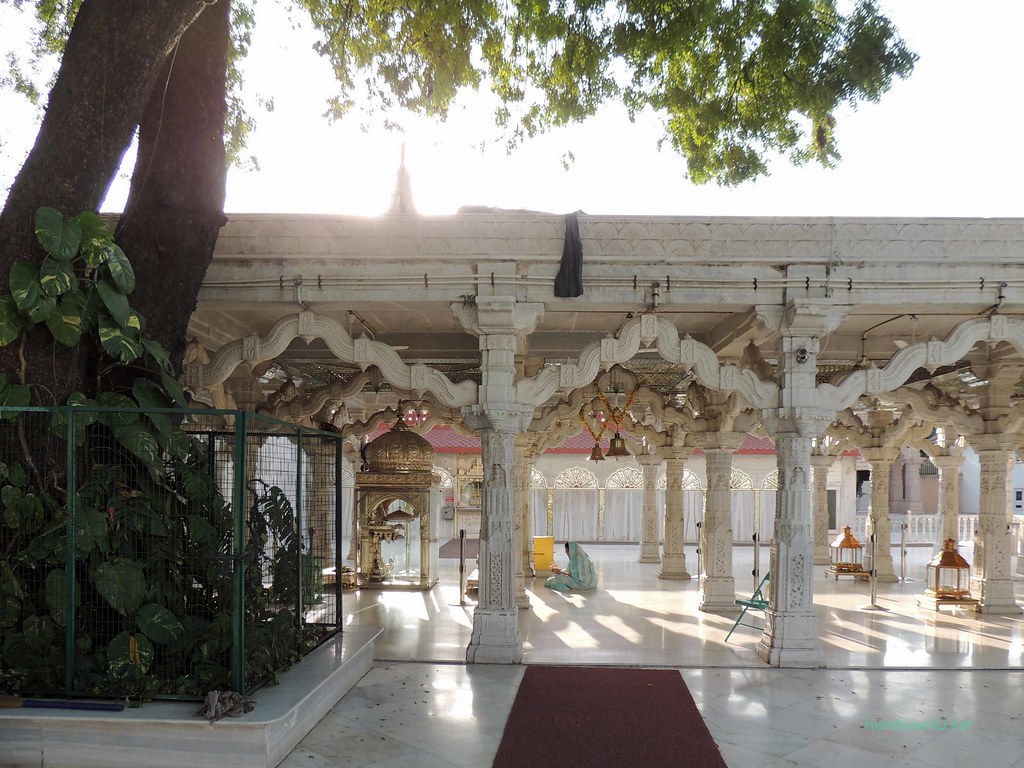
The frequently visited site where the ashes of the saint were kept was enlarged from a rural area to this beautiful temple complex.
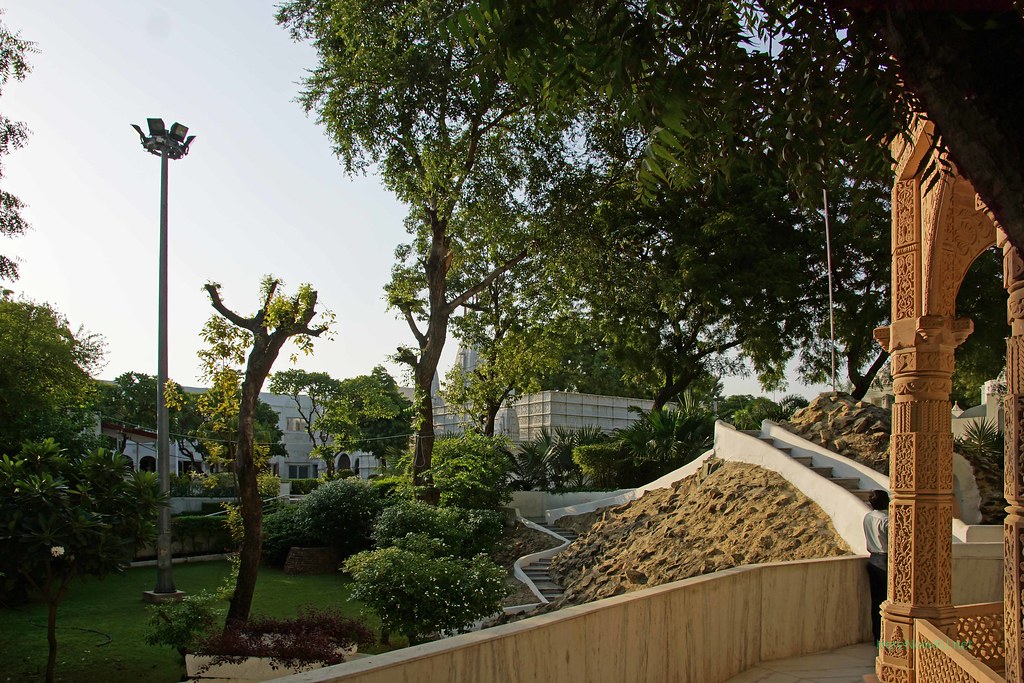
In 20th century only the area around the saint’s cremation ground has got its present park like form.
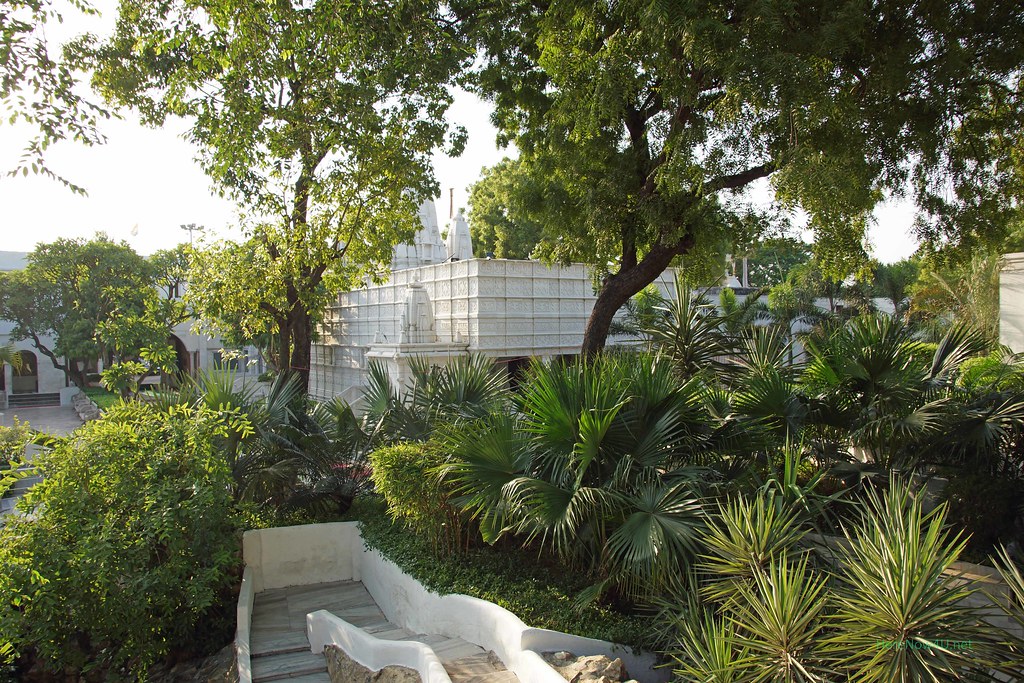
Jina Chandra Suri Manidhari had predicted that the environment of his cremation ground would remain untouched for 800 years.
It was the right decision to visit the temple on this afternoon. The area revealed its enchantment to us, without being disturbed by too many other visitors, in fact we three were the only ones except those few who had come for Puja. The temple meanwhile has become a centre of pilgrimage also for Hindus and Muslims with more than thousand visitors daily when the saint’s birthday is celebrated or other festivals related to the saint are organised. The three of us were happy to be able to feel the peace and serenity of the area and to perceive its glow in the golden light of the afternoon sun.
Enjoy yourself while discovering the manifold details of this temple complex, daily open for all visitors:
 Editor Carla Geerdes
Editor Carla Geerdes
